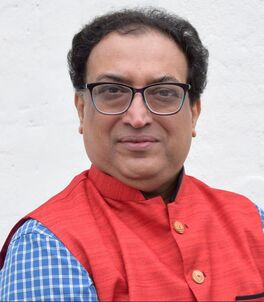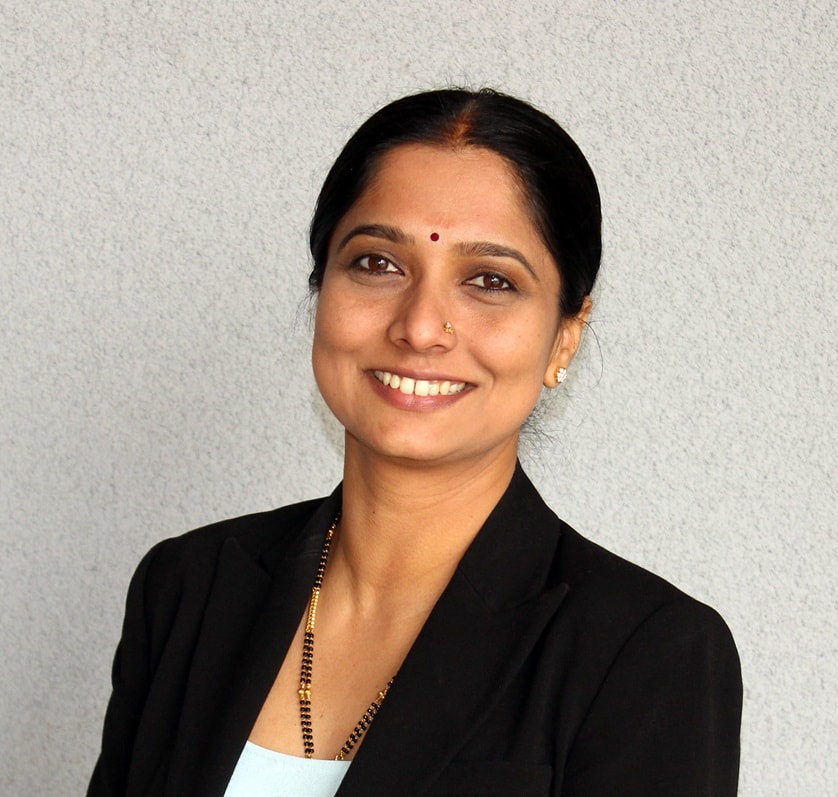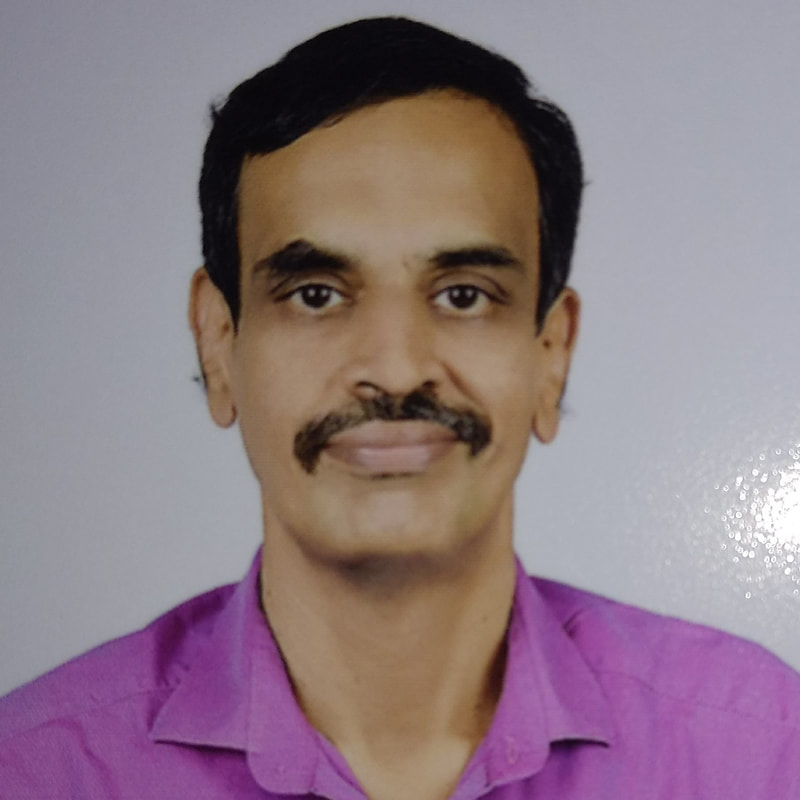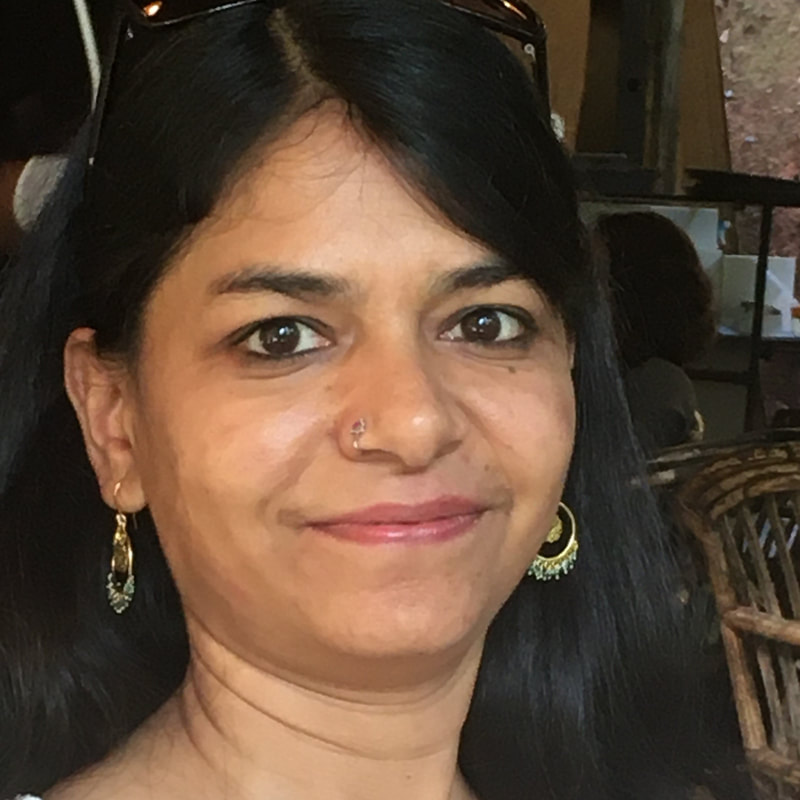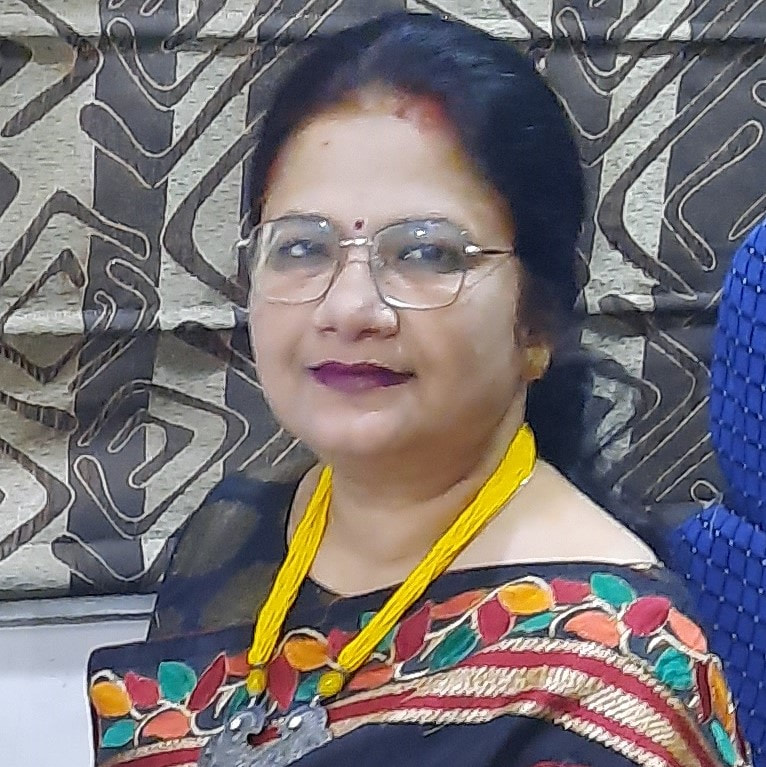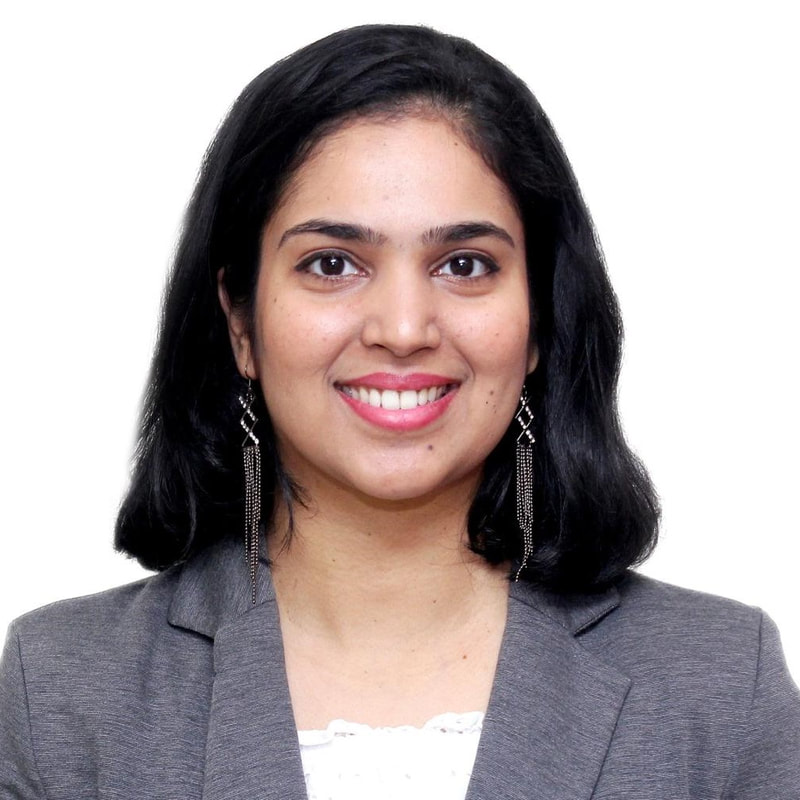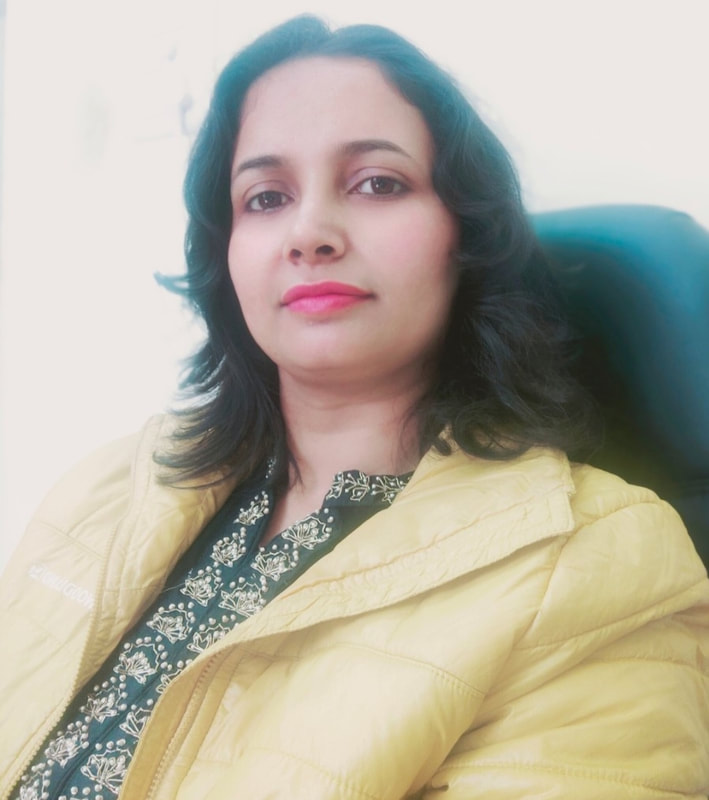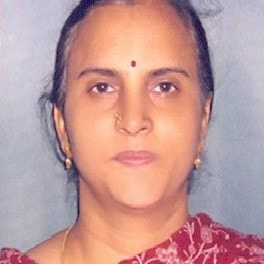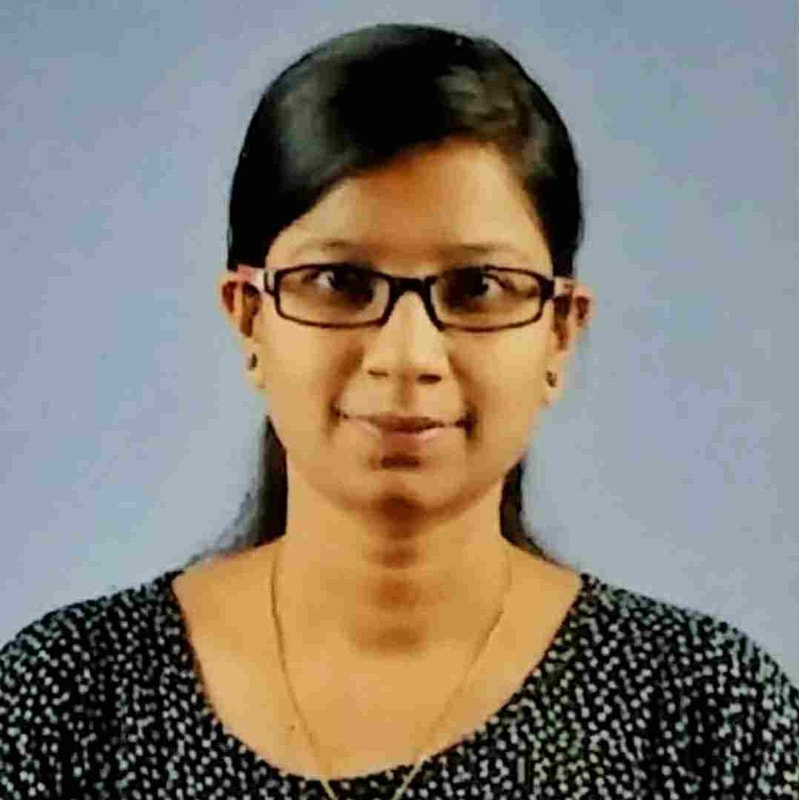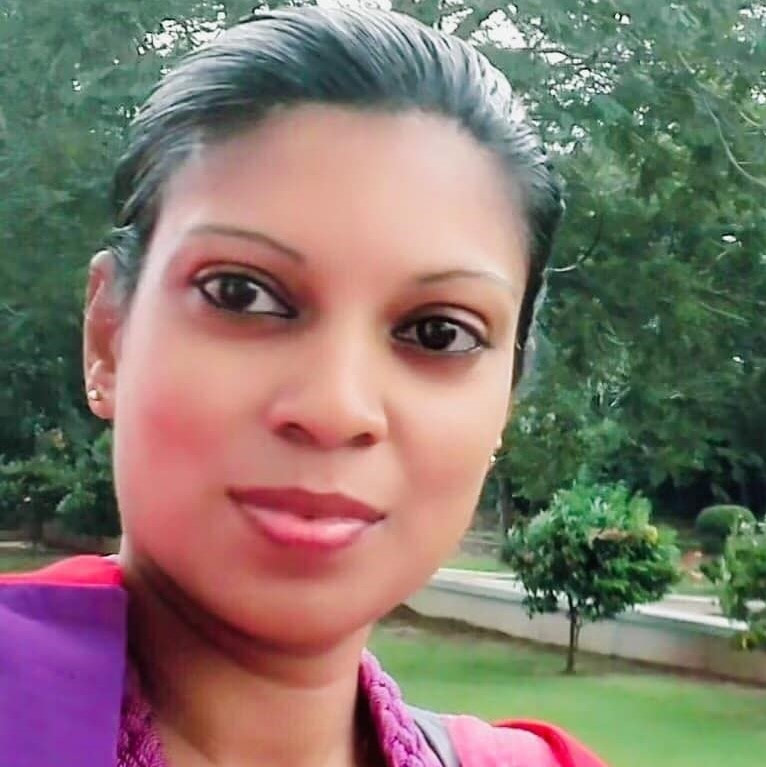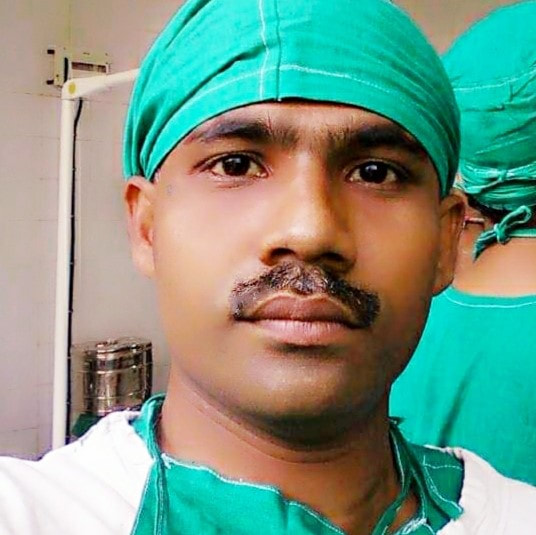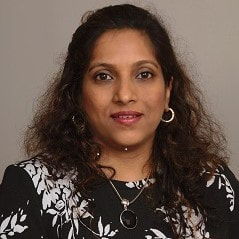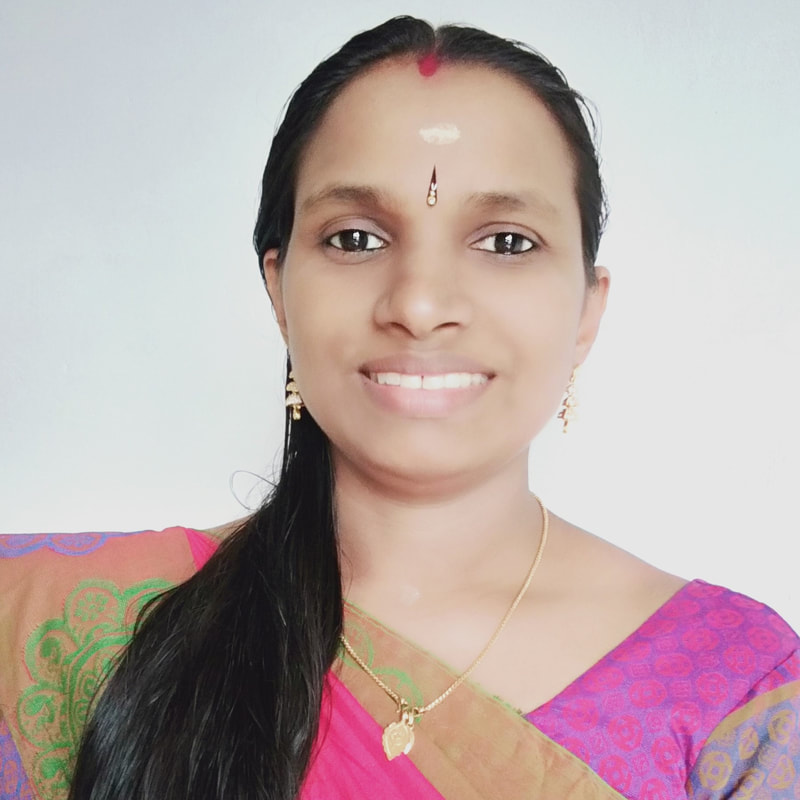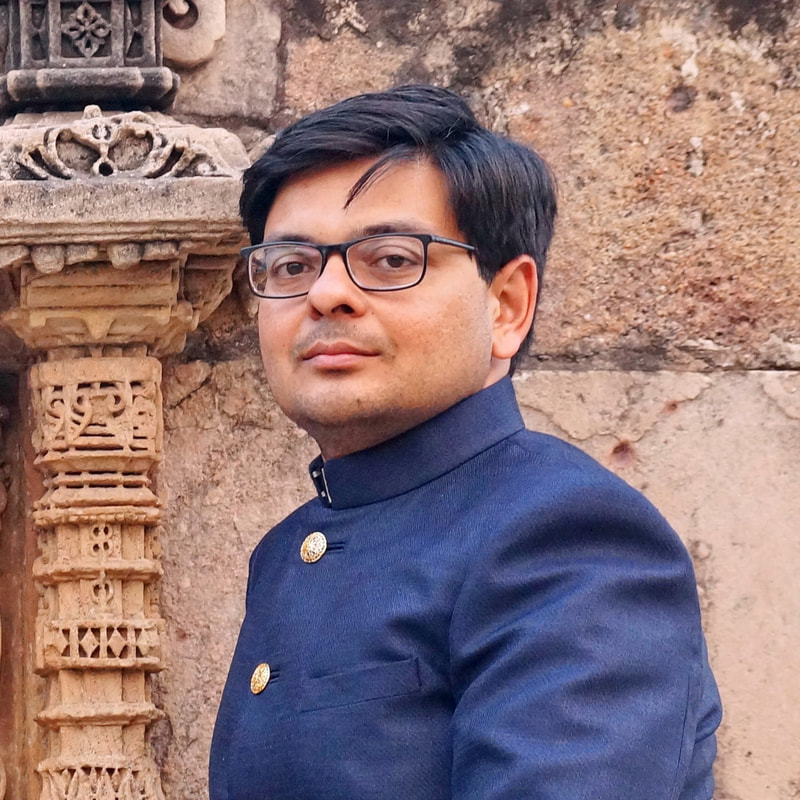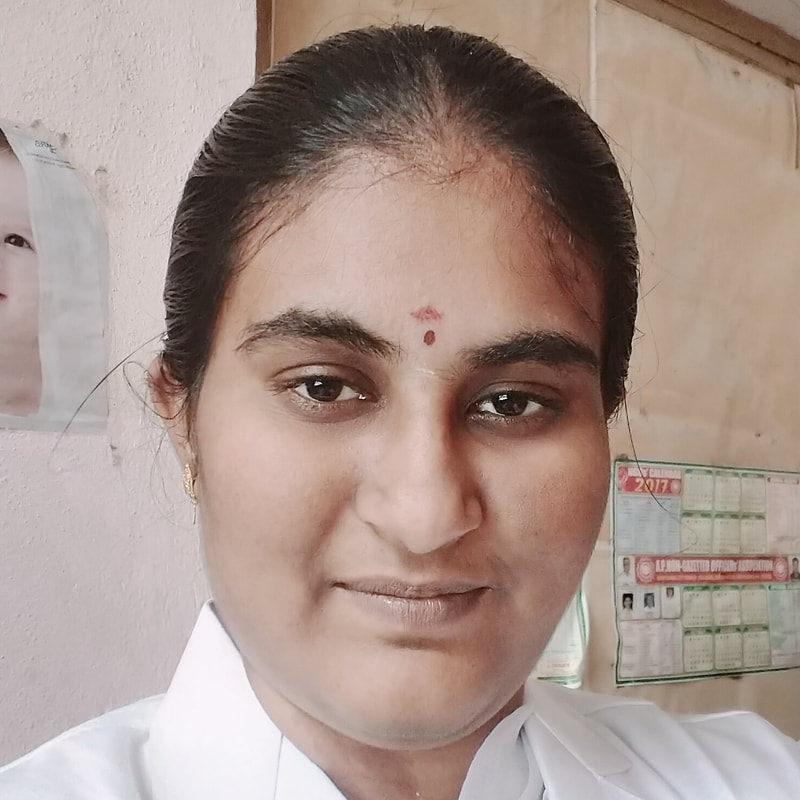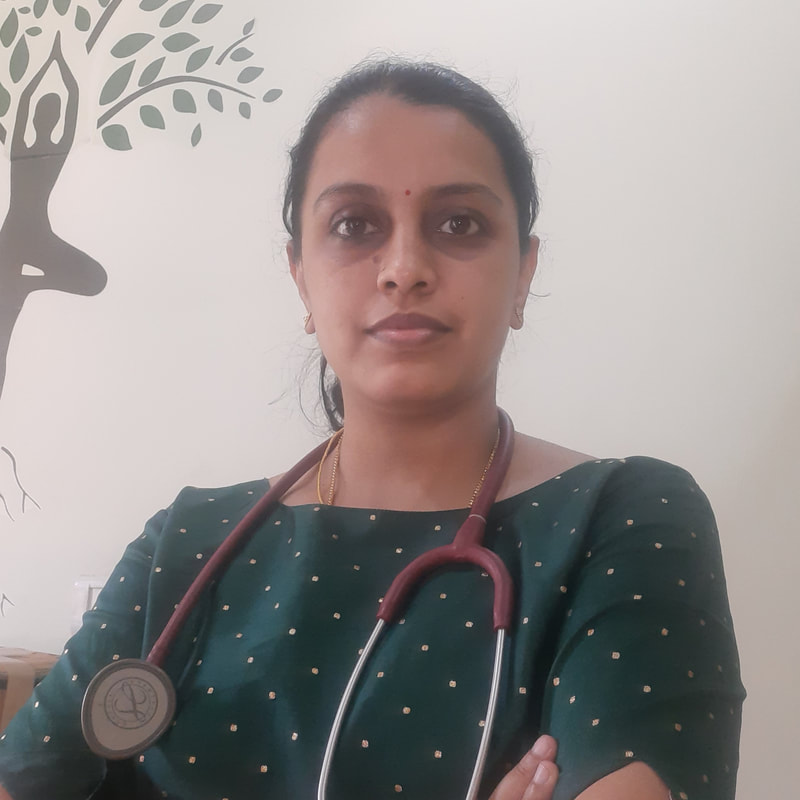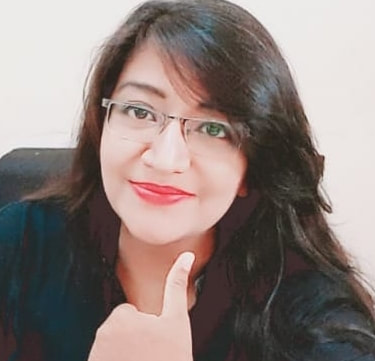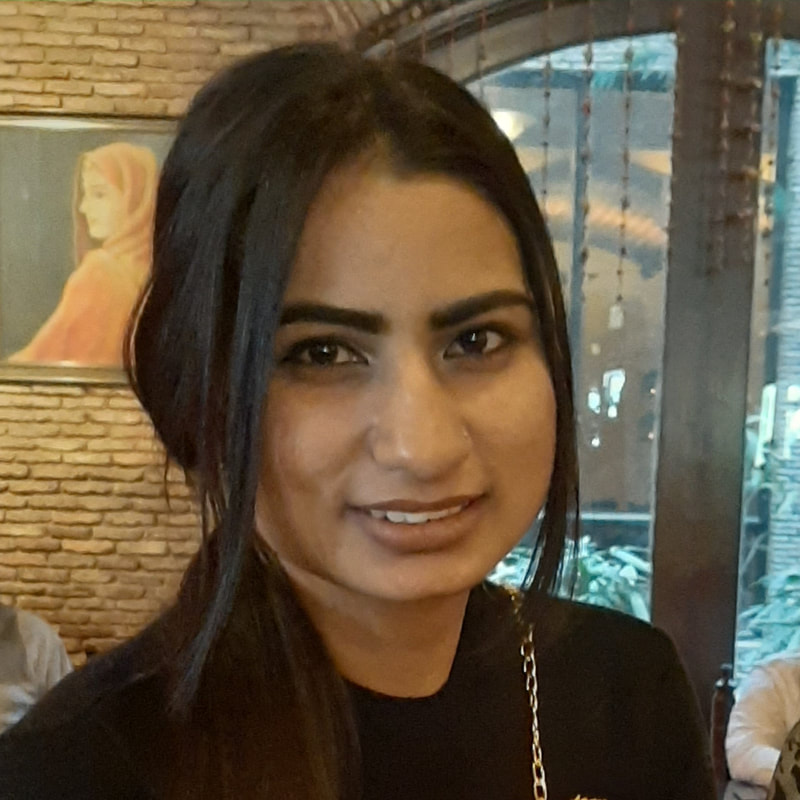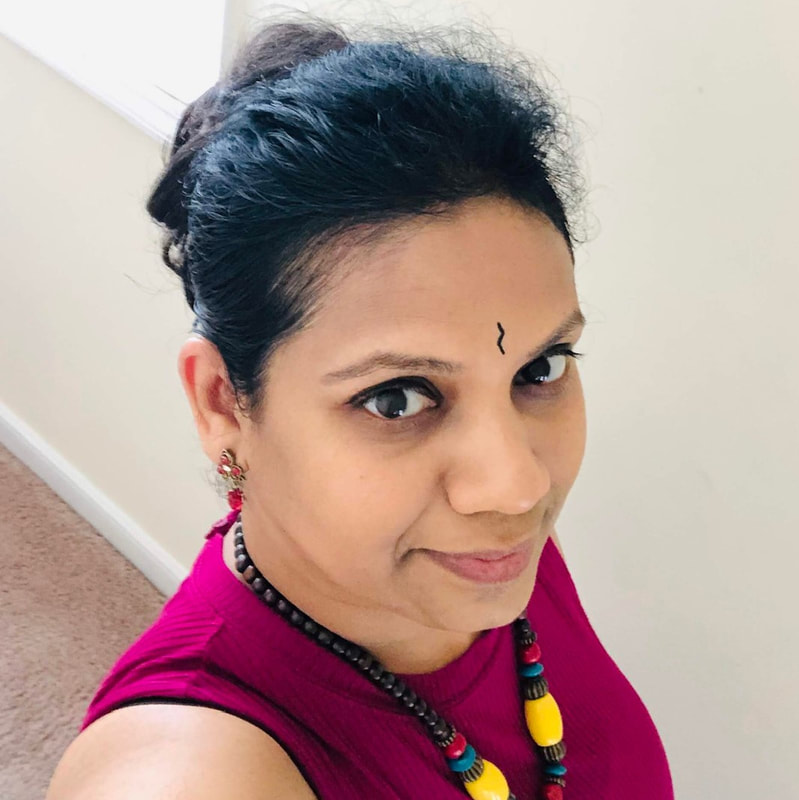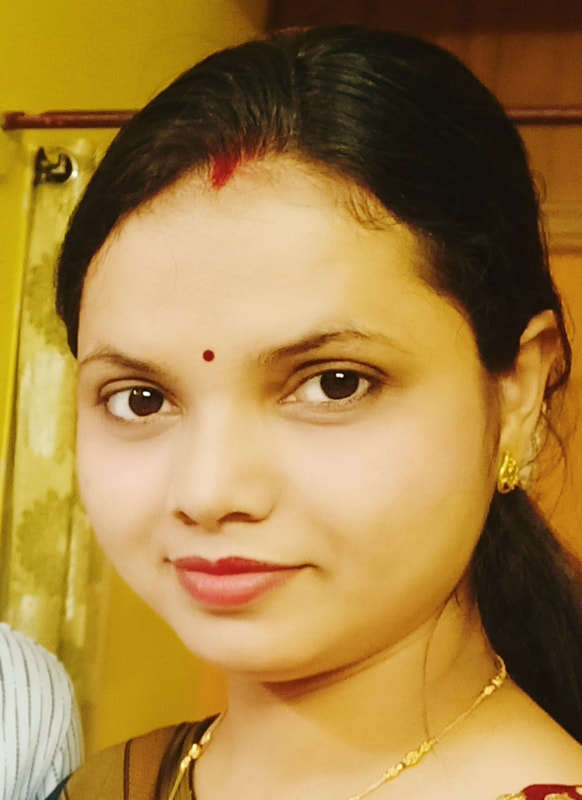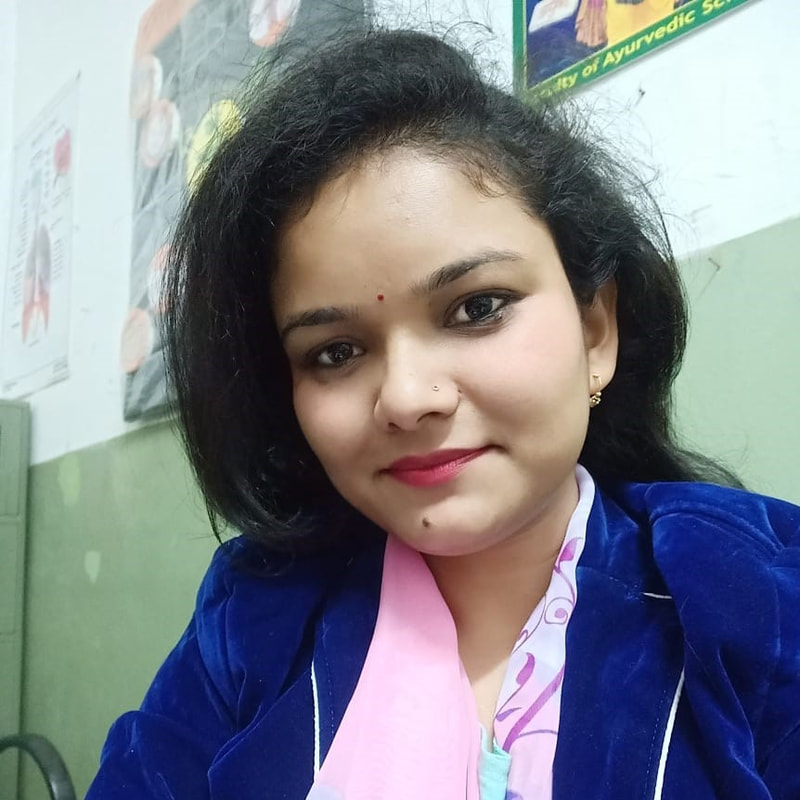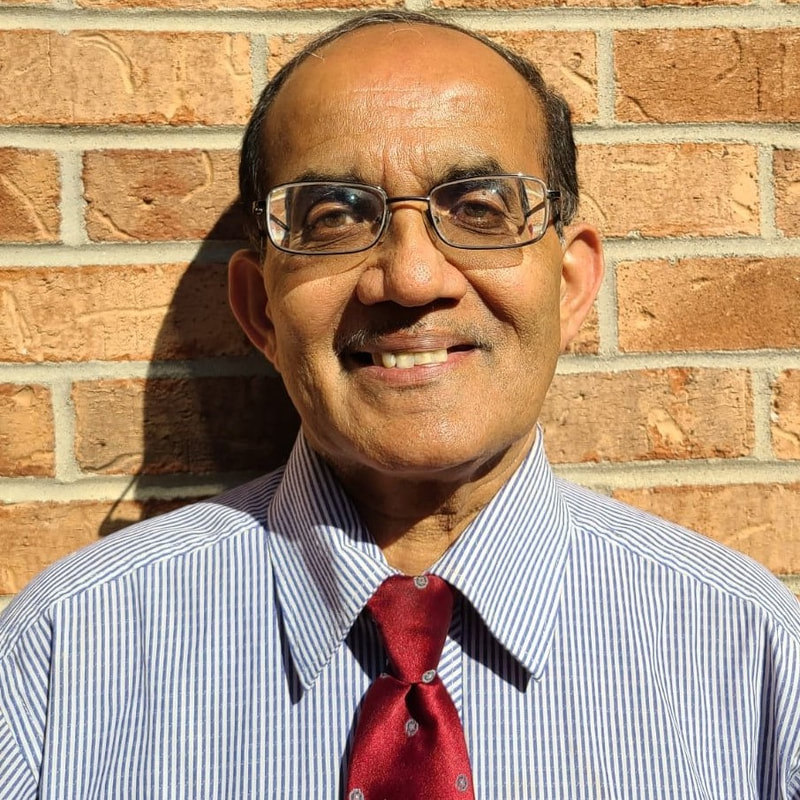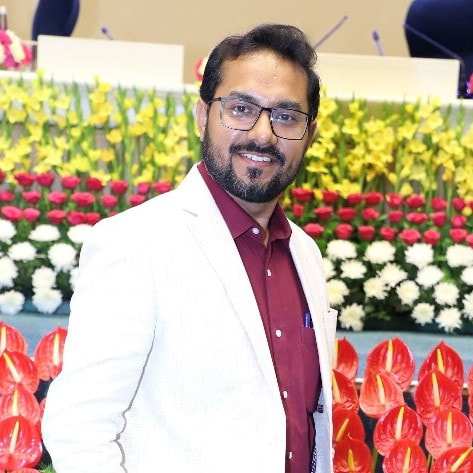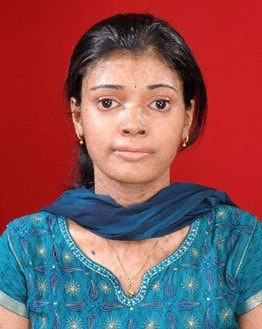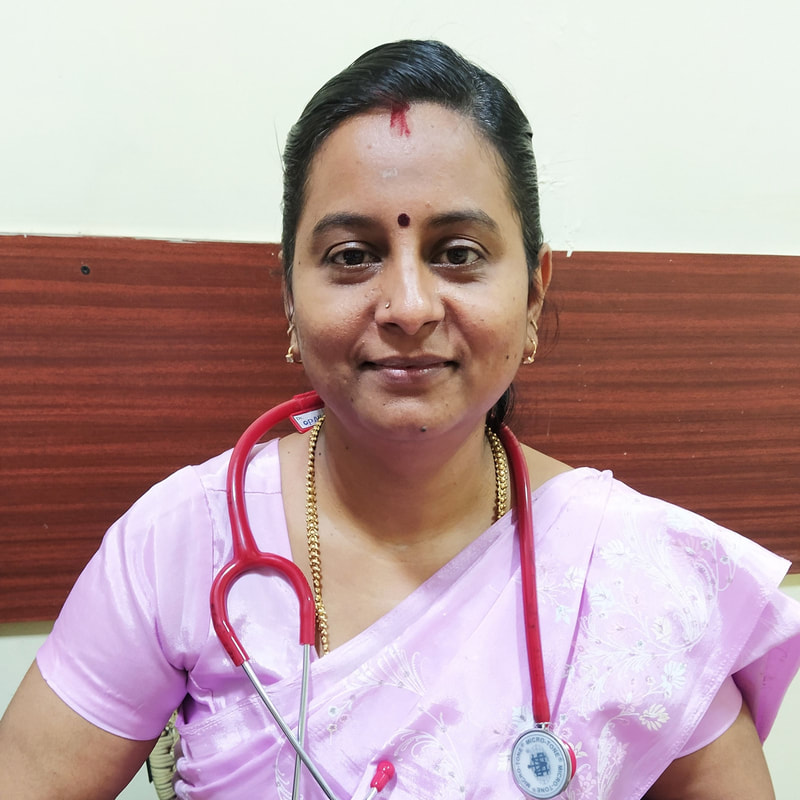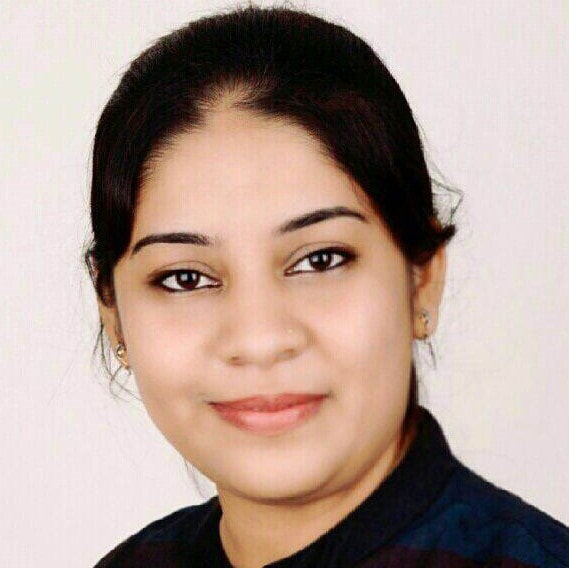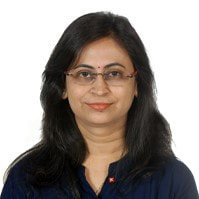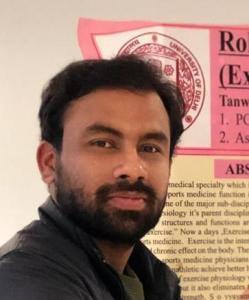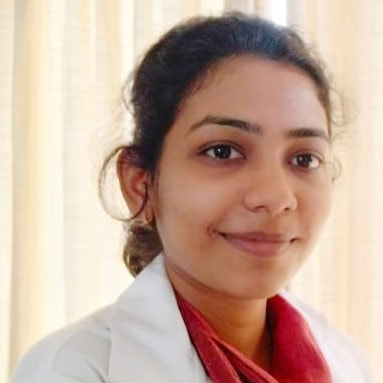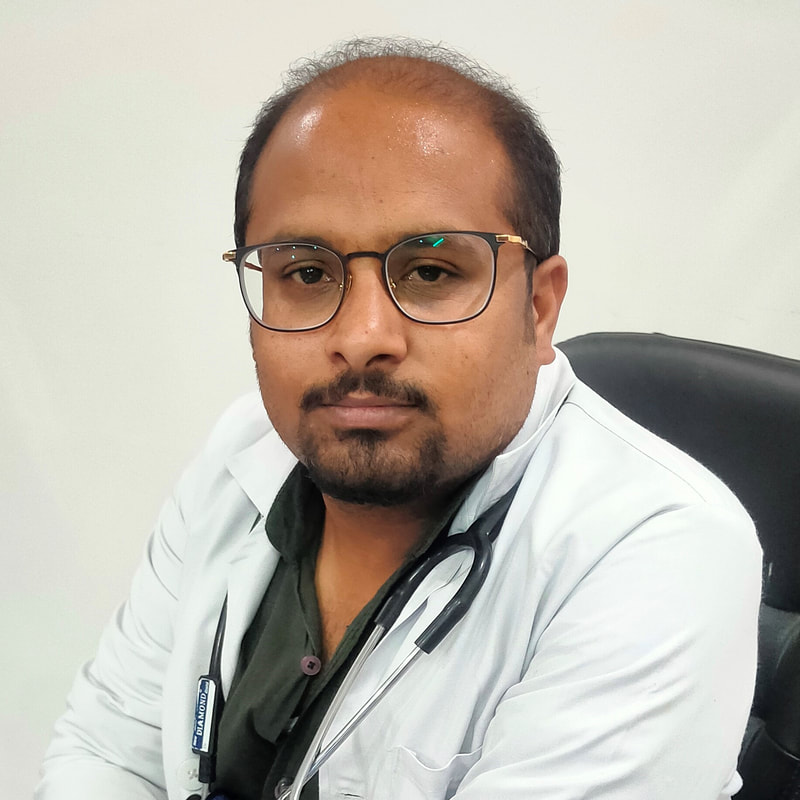- Home
- Shop
- Study Ayurveda
- Conferences
-
Past Conferences
- 61 Conference Ayurveda & Parkinson's Disease
- 60 Conference Ayurveda & Metabolic Disorders
- 59 Conference Ayurveda & Arthritis
- 58 Conference Ayurveda & Allergies
- 57 Conference Child Health Care Through Ayurveda
- 56 Conference Ayurveda for Women
- 55 Conference Ayurveda & Emotions
- 54 Conference Ayurveda & Addictions
- 53 Conference Ayurveda for a Healthy World
- 52 Conference Ayurveda & Eye Care
- 51 Conference Ayurveda & Stress Management
- 50 Conference Ayurveda & Marma Therapy
- 49 Conference Ayurveda & Aroma Therapy
- 48 Conference Ayurveda & Fertility
- 47 Conference Ayurveda for Healthy Living
- 46 Conference Ayurveda & Thyroid Care
- 45 Conference Ayurveda & Kidney Care
- 44 Conference Ayurveda & Heart Care
- 43 Conference Ayurveda & Gut Health
- 42 Conference Ayurveda & Liver Care
- 41 Conference Ayurveda & Lung Care
- 40 Conference Ayurveda & Skin Care
- 39 Conference Ayurveda & Pain Management
- 38 Conference Clinical Ayurveda
- 37 Conference Ayurveda & the Mind
- 36 Conference Ashtanga Ayurveda
- 35 Conference Ayurveda & Epigenetics
- 34 Conference: Evedence Based Ayurveda
- 33 Conference: Ayurvedic Pediatrics
- 32 Conference Ayurveda: Autoimmune & Metabolic Disorders
- 31 Conference AyurYoga for Radiant Health - Cruise
- 30 Conference Ayurveda, Yoga, Spirituality
- 29th Conference Mother & Child Healthcare
- 28 Conference Ayurveda & Panchakarma
- 27 Conference Ayurveda for All
- 26 Conference Ayurveda & Women's Health
- 25 Conference Silver Jubilee
- 24 Conference Kayachikitsa & Panchakarma
- 23 Conference Ayurveda for Health
- 22 Conference Home Remedies
- 21 Conference Ayurveda & Psychology
- 20 Conference Panchanga Veda
- 19 Conference Integrated Medicine
- 18 Conference Herbs & Minerals
- 17 Conference Food & Nutrition
- 16 Conference Shalakya Manthana
- 15 Conference Autoimmune Disorders
- 14 Conference Consciousness
- 13 Conference Energy Medicine
- 12 Conference Spirituality & Healing
- Related
About the Conference
20.0 PACE (Professional Ayurvedic Continuing Education) Credits from AAPNA (Association of Ayurvevedic Professionals of North America, Inc. USA
- 38 Featured Speakers
- Ayurveda & Gut Health
Tentative Conference Schedule
Saturday, August 21, 2021
Conference Time: EST (Eastern Standard Time)
Conference Time: EST (Eastern Standard Time)
Time |
Topic |
Speaker |
Sl. No: |
08:00 am - 08:30 am |
Management of Inflammatory Diseases of the Gut with Special Reference to Grahani Roga |
Dr. Anupama Kizhakkeveettil, BAMS, MAOM, PhD, California, USA |
01 |
08:30 am - 09:00 am |
Irritable Bowel Syndrome - Ayurvedic Management |
Dr. Shripathi Acharya, BAMS, MD-Ayu, PhD-Ayu, Karnataka, India |
02 |
09:00 am - 09:30 am |
Gut as our central channel and second brain |
Gagori Mitra, RYT, CMT, Goa, India |
03 |
09:30 am - 10:00 am |
Anorectal Disorders and Gut Patho Physiology |
Dr. Sheetal Asutkar, BAMS, MD-Ayu, PhD-Ayu, Maharashtra, India |
04 |
10:00 pm - 10:30 am |
Gut Health and Brain Power |
Dr. Devika Deshmukh, BAMS, MD-Ayu, Maharashtra, India |
05 |
10:30 am - 11:00 am |
Healthy Gut - Healthy You by Ayurvedic Perspective |
Dr. Rashi Sharma, BAMS, MD-Ayu, PhD-Ayu, Uttar Pradesh, India |
06 |
11:00 am - 11:30 am |
Concept of Gut Health |
Dr. Vasantha Lakshmi Mutnuri, BAMS, MD-Ayu, Telangana, India |
07 |
11:30 am - 12:00 pm |
Standardization of Lavana Adhrak for Deepana karma |
Dr. Ankita Rai, BAMS, Delhi, India |
08 |
12:00 pm - 12:30 pm |
Ayurvedic management of irritable bowel syndrome |
Dr. Akshata Kichadi, BAMS, MD-Ayu, Karnataka, India |
09 |
12:30 pm - 01:00 pm |
Yoga Therapy for Amlapitta (Gastritis / Acid Peptic Disease / Hyperacidity) |
Dr. H.K.B.M.S. Karunaratne, BAMS, MD-Ayu, Colombo, Sri Lanka |
10 |
01:00 pm - 01:30 pm |
Amalpitta and Ayurvedic Management |
Dr. Ashish Mahajan, BAMS, MD-Ayu, Jammu & Kashmir, India |
11 |
01:30 pm - 02:00 pm |
Role of Satvavajaya Chikitsa in Grahani with special reference to IBS |
Dr. Jeena George, BAMS, Karnataka, India |
12 |
02:00 pm - 02:30 pm |
Gluten Sensitivity |
Leah Quirk, Florida, USA |
13 |
02:30 pm - 03:00 pm |
Non healing wound management |
Dr. Sumedh Wasnik, BAMS, MS-Ayu, Maharashtra, India |
14 |
03:00 pm - 03:30 pm |
H- Pylorie Perspective and Management in Ayurveda |
Dr. Anjum Nadaf, BAMS, RAD, LMT, FAAPNA, New Jersey, USA |
15 |
03:30 pm - 04:00 pm |
Ama / Indigestion - Ayurvedic View and its management |
Dr. Dhanya Radhakrishnan, BAMS, Kerala, India |
16 |
04:00 pm - 04:30 pm |
Irritable Bowel Syndrome - Ayurvedic Management |
Dr. Krup Vasavda, BAMS, MD-Ayu, Gujarat, India |
17 |
04:30 pm - 05:00 pm |
Amlapitta (Gastritis) and Ayurvedic Management |
Dr. Neelima Pamulapati, BAMS, Andhra Pradesh, India |
18 |
05:00 pm - 05:30 pm |
Anorexia Nervosa: Ayurvedic Prospective |
Dr. Jaya Daptardar, BAMS, MHA, Connecticut, USA |
19 |
Sunday, August 22, 2021
Conference Time: EST (Eastern Standard Time)
Conference Time: EST (Eastern Standard Time)
Time |
Topic |
Speaker |
Sl. No. |
08:00 am - 08:30 am |
Management of Constipation in Pregnancy |
Dr. Vaishali Vasavda, BAMS, MS-Ayu, Gujarat, India |
20 |
08:30 am - 09:00 am |
Clinical manifestation of Ajeerna (Indigestion) |
Dr. Kirti Tare, BAMS, MD-Ayu, Maharashtra, India |
21 |
09:00 am - 09:30 am |
Ayurvedic Management of IBS |
Dr. Niveditha Srinivasamurthy, BAMS, Karnataka, India |
22 |
09:30 am - 10:00 am |
Ayurvedic Management of Constipation |
Dr. Zenab Damaniya, BAMS, Maharashtra, India |
23 |
10:00 pm - 10:30 am |
Gut health - Brain power through Basti for restoring female reproductive health |
Dr. Shilpa Donga, BAMS, MD-Ayu, PhD-Ayu, Gujarat, India |
24 |
10:30 am - 11:00 am |
Management of IBS (Grahani) with Basti Karma |
Dr. Sakshi, BAMS, Punjab, India |
25 |
11:00 am - 11:30 am |
Paralleling with the diagnosis of Atma satmya virudha nimittaja vyadhi for Food Allergy |
Dr. C.B. Leenu, BAMS, MD-Ayu, Karnataka, India |
26 |
11:30 am - 12:00 pm |
Brain - Gut - Colon Nexus |
Dr. Rammohan Rao, PhD, CAS, RYT, California, USA |
27 |
12:00 pm - 12:30 pm |
Bulimia: Ayurvedic Management |
Dr. Andhrika Kondeti, BAMS, LMT, RYT, RAD, MH, Virginia, USA |
28 |
12:30 pm - 01:00 pm |
Irritable Bowel Syndrome with special Samprapti Vighatana Chikitsa |
Dr. Sunitha D Yadav, BAMS, Andhra Pradesh, India |
29 |
01:00 pm - 01:30 pm |
Gut-Brain Health : Building Healthy Next Generations |
Dr. Anupama Sarjerao, BAMS, Maharashtra, India |
30 |
01:30 pm - 02:00 pm |
Role of Ayurveda in Hyper Acidity |
Dr. Jyoti Gangwal, BAMS, MD-Ayu, Rajasathan, India |
31 |
02:00 pm - 02:30 pm |
Gut Cancer |
Dr. Nagabhushan Moolky, PhD, Illinois, USA |
32 |
02:30 pm - 03:00 pm |
Ayurvedic management of GERD (Gastro Esophageal Reflux Disorder) |
Dr. Nitin Juneja, BAMS, MD-Ayu, Punjab, India |
33 |
03:00 pm - 03:30 pm |
Vomiting during pregnancy and Ayurveda |
Dr. Nilofar Shaikh, BAMS, MS-Ayu, Gujarat, India |
34 |
03:30 pm - 04:00 pm |
A Control Clinical Study of Takra Basti in Grahani Roga with special reference to Irritable Bowel Syndrome |
Dr. S. Supriya, BAMS, MD-Ayu, Karnataka, India |
35 |
04:00 pm - 04:30 pm |
Amla Pitta and its management through Ayurveda |
Dr. Senthil Rani Gopalaswamy, BAMS, Tamil Nadu, India |
36 |
04:30 pm - 05:00 pm |
Ulcerative Colitis and Ayurvedic Management |
Dr. Somesh Kaushik, BAMS, ND,MPH, MHA, RYT, Connecticut, USA |
37 |
05:00 pm - 05:30 pm |
Healthy sleep cycle (Samyak Nidra): A factor behind healthy gut microbe |
Dr. Ankur Kumar Tanwar, BAMS, MD (Ayu), PhD - Scholar, New Delhi, India |
38 |
Featured Speakers
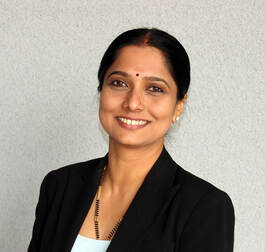
Dr. Anupama Kizhakkeveettil, BAMS, MAOM, PhD, California, USA - is an Ayurvedic Practitioner, licensed acupuncturist, yoga teacher, Professor and Program Director of Ayurvedic Medicine at Southern California University of Health Sciences. As an advocate for the Ayurvedic profession and the advancement of its goals, Vaidya Anu serves as the board of directors of the California Association of Ayurvedic Medicine, and the National Ayurvedic Medical Association (NAMA). She is also the President of the Athreya Herbs, a U.S-based provider of Ayurvedic herbal supplements, and the Vice President of Athreya Ayurvedic Integrative Health Center.
Topic: Management of Inflammatory Diseases of the Gut with Special Reference to Grahani Roga
Abstract: Ayurvedic medicine provides detailed descriptions of the various digestive disorders some of which can be correlated with various inflammatory diseases of the gut explained in the biomedicine. This presentation will discuss the various inflammatory diseases of the gut with special reference to Grahani Roga.
Topic: Management of Inflammatory Diseases of the Gut with Special Reference to Grahani Roga
Abstract: Ayurvedic medicine provides detailed descriptions of the various digestive disorders some of which can be correlated with various inflammatory diseases of the gut explained in the biomedicine. This presentation will discuss the various inflammatory diseases of the gut with special reference to Grahani Roga.
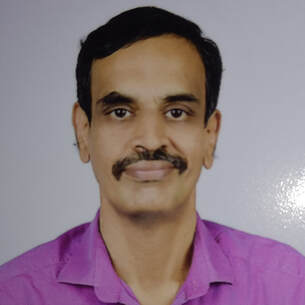
Dr. Shripathi Acharya, BAMS, MD-Ayu, PhD-Ayu, Karnataka, India - is presently working as Director Academic in Muniyal Institute of Ayurveda Medical Sciences Manipal India . He has guided more than 15 PG scholars in Kaya Chikitsa department and authored 14 books and more than 150 scientific and research papers which were published so far. He had presented papers in Philadelphia USA, Washington USA, Glasgow UK, Beijing China, Milan Italy, Singapore , Colombo ,Sri Lanka , Dhaka, Bangladesh , Chiang Mai, Thailand . He has done oral presentations in webinars held in Sydney ,Melbourne ,Hongkong ,Taipei ,Bangkok ,Johannesburg , London ,Manchester ,Paris, Zurich, and Washington . He is also member of ISPOR, New Jersey , SFE, Kolkata , Vigyan Bharathi , New Delhi and SVAK, Bangalore.
Topic: Ayurveda management of Irritable Bowel Syndrome
Abstract: Irritable Bowel Syndrome is a chronic intestinal disease which is characterized by increased frequency of defecations . Psychological stress is commonly seen as a major aggravating factor in this disease . Hence it is also considered as a psychosomatic disorder. Ayurveda system has a better role in the management of Irritable Bowel Syndrome . Formulations like Kutaja parpati, Kupilu hingwadi vati, Kutajarishta, Vatsakadi ghana vati, and Bilvavaleha are effective in this disease. These formulations are having actions like deepana, pachana, antidiarrheal, antiamoebic, grahi, anti-stress, adaptogenic and anti-infective in action. In the present paper discussion is made on the role of Ayurveda management in Irritable Bowel Syndrome.
Topic: Ayurveda management of Irritable Bowel Syndrome
Abstract: Irritable Bowel Syndrome is a chronic intestinal disease which is characterized by increased frequency of defecations . Psychological stress is commonly seen as a major aggravating factor in this disease . Hence it is also considered as a psychosomatic disorder. Ayurveda system has a better role in the management of Irritable Bowel Syndrome . Formulations like Kutaja parpati, Kupilu hingwadi vati, Kutajarishta, Vatsakadi ghana vati, and Bilvavaleha are effective in this disease. These formulations are having actions like deepana, pachana, antidiarrheal, antiamoebic, grahi, anti-stress, adaptogenic and anti-infective in action. In the present paper discussion is made on the role of Ayurveda management in Irritable Bowel Syndrome.
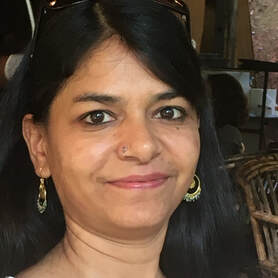
Gagori Mitra, Goa, India - As the co-founder of Aithein, Gagori is a highly experienced and practiced Ayurveda and Bodywork expert. For her, the connection of the body, its senses, mind and soul is a way of life. She imparts her knowledge and philosophy with a deep understanding and through her personal experience over the years. Traditionally trained by her mother about Ayurveda since childhood. Professionally trained in Chavutti Uzichil by a 90-year-old Kalari master with more than 65 years of Chavutti experience Certificate of Ayurveda from the Government of India after receiving training from Kerala Certified RYS 200 Vinyasa Yoga practitioner and teacher from Yoga Alliance UK, Trained in Professional Bodywork as a certified Instructor with 600 hours training from an AMTA (American Massage Therapy Association) certified instructor in 2002, Manual Lymph Drainage certification in 2006 from Chiva-Som International Academy (Thailand) Trained in traditional Balinese massage from Bali Bisa school, Indonesia, Trained as a Reiki Master and has imparted training to students in the same technique, Completed more than 3000 hours of training massage therapy and bodywork training to students from all over the world. Completed more than 500 hours of training Advaya Yoga to students.
Topic: Gut as our central channel and second brain
Abstract: Ayurveda has talked about gut health for thousands of years. What we eat, how we eat affects our body, mind, and emotions. The gut is our second brain which affects our thoughts, sleep, bones, nervous system, and an individual as a whole. Ayurveda talks about eating good food, eating on time and maintaining proper lifestyle will keep the central channel in balance. My talk will be focused on how food, emotions, body and mind is affected through the gut.
Topic: Gut as our central channel and second brain
Abstract: Ayurveda has talked about gut health for thousands of years. What we eat, how we eat affects our body, mind, and emotions. The gut is our second brain which affects our thoughts, sleep, bones, nervous system, and an individual as a whole. Ayurveda talks about eating good food, eating on time and maintaining proper lifestyle will keep the central channel in balance. My talk will be focused on how food, emotions, body and mind is affected through the gut.
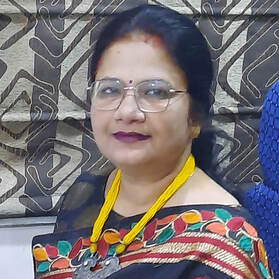
Dr. Sheetal Asutkar, BAMS, MD-Ayu, PhD-Ayu, Maharashtra, India - Head department of Shalya tantra, Datta Meghe Ayurveda College Nagpur with 20 years teaching experience, post graduation and PhD guide, published in national and international journals, invited guest speaker, performed general and anorectal surgeries, acquired extraordinary performance in ayurvedic para surgical procedures and leech therapy in various medical and surgical conditions, completed her doctoral research work on study of inflammatory markers in patients with arthritis and treated with unique leech therapy, organized national and international conferences, resource person on various topics related to shalya tantra, organized surgery lecture series on Ayush Darpan channel, delivered several lectures and numerous awards includes - best speaker, Dhanwantari award from ADF, India, life member of APA (Ayurveda Proctology Association), National Sushruta Association, Life member of NIMA Proctology Society, Maharashtra and NIMA Maharashtra, India.
Topic: Prevalence of Anorectal disorders as an outcome of Gut pathophysiology and Ayurveda treatment modalities in present world
Abstract: Anorectal disorders like piles, fissure, fistula, Pilonidal sinus and Anorectal abscess are prevalent among the diseases occurring due to disturbances in gut pathophysiology .These occur owing to the faulty lifestyle, consumption of inappropriate food and inconsistent dietary factors to the genomics of prakriti according to Ayurveda. Also the work priorities, stress factors and certain predisposing factors play a vital role in accounting the severity of the conditions. These conditions are vulnerable to cause pain, bleeding per rectum, Pus discharge, swelling and other signs of inflammation along with a fistula and has severity of symptoms to an extent where they need surgical interventions in some cases. The moto of this presentation is to provide an observational data from around 1000 cases of anorectal diseases where it has been concluded that lifestyle modification, dietary regimen according to dosha, dushya concept and prakriti genomics and avoiding certain precipitating factors leads to conservation of health to these individuals, as well as ksharakarma, kshratsutra, medicinal and para surgical procedures like agni and leech therapy contribute as combination therapies have proved as hallmark of treatment of these diseases.
Topic: Prevalence of Anorectal disorders as an outcome of Gut pathophysiology and Ayurveda treatment modalities in present world
Abstract: Anorectal disorders like piles, fissure, fistula, Pilonidal sinus and Anorectal abscess are prevalent among the diseases occurring due to disturbances in gut pathophysiology .These occur owing to the faulty lifestyle, consumption of inappropriate food and inconsistent dietary factors to the genomics of prakriti according to Ayurveda. Also the work priorities, stress factors and certain predisposing factors play a vital role in accounting the severity of the conditions. These conditions are vulnerable to cause pain, bleeding per rectum, Pus discharge, swelling and other signs of inflammation along with a fistula and has severity of symptoms to an extent where they need surgical interventions in some cases. The moto of this presentation is to provide an observational data from around 1000 cases of anorectal diseases where it has been concluded that lifestyle modification, dietary regimen according to dosha, dushya concept and prakriti genomics and avoiding certain precipitating factors leads to conservation of health to these individuals, as well as ksharakarma, kshratsutra, medicinal and para surgical procedures like agni and leech therapy contribute as combination therapies have proved as hallmark of treatment of these diseases.
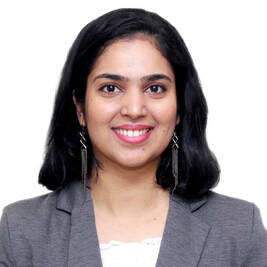
Devika Deshmukh, BAMS, MD-Ayu, CMT, Maharashtra, India - MD- Panchakarma, Ayurveda through SDM College of Ayurveda, Hassan. RGUHS University. Bangalore. Year 2014 Bachelor of Ayurvedic Medicine & Surgery through SDM College of Ayurveda, Hassan Kerala. RGUHS University. Bangalore. Year 2011, Certified Massage Therapist and Health Educator through National Holistic Institute, San Jose, California, USA. AMTA Nationally certified. Year 2015., Global Ambassador of AAPNA, Association of Ayurvedic Professionals of North America. USA. Year 2017. Expertise / Area of Specialization: Ayurveda & Prakruti Parikshan ie: Mind-Body Constitution Analysis, Pre-conceptual Panchakarma, Pre-natal & Post natal care, Panchakarma for Internal Detoxification & Weight Management, Ayurvedic Beauty Care, Integrative Medicine Yoga, Breathing & Meditative healing 1. Dr. Devika did her schooling from Shri Madhavrao Bhagwat High School, in Vile Parle & Sathaye College of Science, Mumbai. 2. She completed her Bachelor of Ayurvedic Medicine & Surgery [B.A.M.S] from S.D.M. College & Hospital of Ayurveda, Hassan, Karnataka, through Rajiv Gandhi University of Health Sciences, Bangalore, in 2011. 3. She did her MD in Pancha Karma from S.D.M. College & Hospital of Ayurveda, Hassan, Karnataka, through Rajiv Gandhi University of Health Sciences, Bangalore, 2014. Her thesis topic was 'Comparative study on the effect of Nasya Karma and Greeva Basti in the management of Greeva Hundanam w.s.r. to Cervical Spondylosis.' 4. She is a ‘State & Nationally Certified Massage Therapist & Health Educator’ [C.M.T] through National Holistic Institute, San Jose, California, since 2015. 5. She is a ‘Fellow of Institute of Indian Medicine’ [F.I.I.M] – since 2016. 6. She is also a ‘Registered Master Ayurvedic Specialist’ [R.M.A.S], certified through Association of Ayurvedic Professionals of North America [AAPNA] since 2017. 7. She has 12 years of experience in handling international clients. Activities: 1. Author: - Under the guidance of Dr. P. H. Kulkarni she co-edited 2 books in 2016- a. Abhyanga Tantra – Ayurveda Massage., b. Yoga with Ayurveda. 2. Teaching: A) She is a Webinar Faculty at International University of Yoga & Ayurveda, Florida, USA since 2015 till date & conducts online courses for- a. Certified Ayurvedic Lifestyle Consultant [CALC] b. Certified Ayurvedic Practitioner [CAP] c. Ayurveda Nutritionist Certification [ALC] B) She is an expert consultant & webinar faculty at Satva.ai, a US based Ayurvedic wellness since 2020 & specializes in topics related to Pre-conceptual Panchakarma, Women’s wellness, Pre-natal & Post-natal Ayurvedic care, Healthy pregnancy & Healthy newborn care. C) Has been a trainer & teacher at Natural Medicine & Ayurveda Clinic, Academy & Spa, San Jose California since 2014 – 2017. She has taught various ayurvedic subjects, taken Ayurveda & Yoga workshops, taught Ayurvedic Cooking at various places through this academy in California. D) She carries 8 years of experience in teaching Ayurveda to layman & students of Ayurveda coming from India, US, UK Middlesex University & Europe to Kerala Ayurvedic Clinic Mumbai, SDM College of Ayurveda Hassan, Yogakshema Spa Hassan, Karnataka. E) She has 12 years of experience in handling international clients. She has spent 5 years in California providing Ayurvedic healthcare to the public. Affiliations & Corresponding Responsibilities: Global Ayurveda Conferences. Pennsylvania, USA. Ayurvedic Teaching Faculty via Webinars. Since 2015. Council for Ayurveda Research, USA. Outreach committee member from 2015 to 2018. Admin panel research member since 2019. Association of Ayurvedic Professionals of North America. USA. Brand Ambassador, Since 2016. Association of Ayurvedic Professionals of North America. USA. Life Member, since 2015., Kerala Ayurvedic Clinic, Vile Parle (East) Mumbai. Chief Physician & Panchakarma Consultant. Since 2019., Kerala Ayurvedic Clinic, Vile Parle (East) Mumbai. Online Consultant. Since 2015., Natural Medicine & Ayurveda Clinic, Academy & Spa. San Jose, California, USA. Healthcare Professional & Panchakarma Expert. Year 2014-2018. Yogakshema Ayurveda Panchakarma Specialty Center, Hassan, India. Spa set up consultant & Training expert. Year 2013- 2014 3. Event Planning: Dr. Devika loves organizing & conducting meetings to help plan Ayurveda conferences in Bay Area, California.
4. Choreography: Dr. Devika leads an enthusiastic Folk & Semi classical dance group & they conduct various Cultural events in Bay Area, California.
Achievements: 1. Dr. Devika was Awarded the prestigious ‘Vagbhata Award 2016’ for excellence in Ayurvedic Teaching by Association of Ayurvedic Professionals of North America [AAPNA] in recognition of exceptional talent, efforts & erudition in Ayurvedic & Vedic Sciences at 18th International Conference at Bastyr University, Washington, USA. 2. She was conferred the title of ‘Ambassador of AAPNA’ by Association of Ayurvedic Professionals of North America in 2017 for her dedication & continual efforts in promotion of Ayurveda in the West & excellence in teaching, by Dr. Shekhar Annambhotla [MD Ayurveda, RMAS, CMT] 3. Her expertise in Pancha Karma was valued & recognized by Natural Medicine & Ayurveda Clinic, Academy & Wellness Spa with a Certificate of Appreciation in honour of her ‘Healer Heart & Dynamism’ by Dr. Vivek Shanbhag [MD Ayurveda, ND] 4. She was the Cultural Secretary for S.D.M. College of Ayurveda, Hassan. She has won awards in Interstate & University Dance Competitions. 5. She loves sports & has played for Interschool & Intercollege Volleyball teams. She received a Gold Medal in Maharashtra State Level Open-Air Rifle Shooting. 6. Presentations: She has presented various papers in National & International Ayurveda Conferences on the topics of Pancha Karma, Women’s Wellness, Musculo Skeletal, Auto Immune & Lymphatic System disorders, Massage therapy, Infertility, Seasonal Detoxification, Healthy Pregnancy & Healthy Newborn. 7. She was bestowed the title of ‘Best Fit’ & won the crown as “Mrs. Vile Parle” in Oct 2019, for her fitness, oratory skills & people presence. This event was conducted by Seabuzz. 8. She was invited by her Local Community of Vile Parle, Mumbai to take regular Wellness Wednesdays Live Facebook sessions for 30 mins every Wednesdays where she offers free of cost education & awareness of Ayurveda, Yoga and Panchakarma along with tips to protect community health. She is one of the most sought after Ayurvedic Panchakarma Physician, Teacher & Counsellor in Mumbai.
Topic: Gut-Health and Brain-Power
Abstract: Annavaha srotas, Udakavaha, Majjavaha srotas and Manovaha srotas are closely related with Pittadhara & Majjadhara Kala sharir. Their efficiency and health are co-dependent on each other. One of the major causes of anxiety, depression, weight loss & obesity are eating habits & mismanagement of gut health. Ayurveda offers a wholesome approach on how brain activity is influenced if you have a clean gut. It not only gives various ways to seasonally detox your body but also fix the problems from a grass root level. How does gut health affect your intuition? Let us know in this presentation.
4. Choreography: Dr. Devika leads an enthusiastic Folk & Semi classical dance group & they conduct various Cultural events in Bay Area, California.
Achievements: 1. Dr. Devika was Awarded the prestigious ‘Vagbhata Award 2016’ for excellence in Ayurvedic Teaching by Association of Ayurvedic Professionals of North America [AAPNA] in recognition of exceptional talent, efforts & erudition in Ayurvedic & Vedic Sciences at 18th International Conference at Bastyr University, Washington, USA. 2. She was conferred the title of ‘Ambassador of AAPNA’ by Association of Ayurvedic Professionals of North America in 2017 for her dedication & continual efforts in promotion of Ayurveda in the West & excellence in teaching, by Dr. Shekhar Annambhotla [MD Ayurveda, RMAS, CMT] 3. Her expertise in Pancha Karma was valued & recognized by Natural Medicine & Ayurveda Clinic, Academy & Wellness Spa with a Certificate of Appreciation in honour of her ‘Healer Heart & Dynamism’ by Dr. Vivek Shanbhag [MD Ayurveda, ND] 4. She was the Cultural Secretary for S.D.M. College of Ayurveda, Hassan. She has won awards in Interstate & University Dance Competitions. 5. She loves sports & has played for Interschool & Intercollege Volleyball teams. She received a Gold Medal in Maharashtra State Level Open-Air Rifle Shooting. 6. Presentations: She has presented various papers in National & International Ayurveda Conferences on the topics of Pancha Karma, Women’s Wellness, Musculo Skeletal, Auto Immune & Lymphatic System disorders, Massage therapy, Infertility, Seasonal Detoxification, Healthy Pregnancy & Healthy Newborn. 7. She was bestowed the title of ‘Best Fit’ & won the crown as “Mrs. Vile Parle” in Oct 2019, for her fitness, oratory skills & people presence. This event was conducted by Seabuzz. 8. She was invited by her Local Community of Vile Parle, Mumbai to take regular Wellness Wednesdays Live Facebook sessions for 30 mins every Wednesdays where she offers free of cost education & awareness of Ayurveda, Yoga and Panchakarma along with tips to protect community health. She is one of the most sought after Ayurvedic Panchakarma Physician, Teacher & Counsellor in Mumbai.
Topic: Gut-Health and Brain-Power
Abstract: Annavaha srotas, Udakavaha, Majjavaha srotas and Manovaha srotas are closely related with Pittadhara & Majjadhara Kala sharir. Their efficiency and health are co-dependent on each other. One of the major causes of anxiety, depression, weight loss & obesity are eating habits & mismanagement of gut health. Ayurveda offers a wholesome approach on how brain activity is influenced if you have a clean gut. It not only gives various ways to seasonally detox your body but also fix the problems from a grass root level. How does gut health affect your intuition? Let us know in this presentation.

Dr. Rashi Sharma, BAMS, MD-Ayu, PhD-Ayu, Banaras, India - working as Associate Professor ,Department of Kriya Sharir, Faculty of Ayurveda ,IMS BHU ,Varanasi ,Uttar Pradesh ,India.I have done my graduation from Ayurveda and Unani Tibbia College University of Delhi and MD, PhD from BVP University Pune, Maharashtra India. I have been honoured with Best MD thesis from International Ayurveda Association and Late saubhagyavati Laxmi Bai thatte award from All India Sharir Research Institute, Lucknow ,Uttar Pradesh. I have also received Best Teacher award 2020 from MHRD, Uttarakhand. I have published several research papers in Indexed peer reviewed International and National journals. I am author of two text books in Ayurveda as per the CCIM curriculum. Presently I am Editor in Chief of the International peer reviewed journal -IJRAHS.
Topic: Healthy Gut- Healthy you by Ayurvedic Perspectives
Abstract: In Ayurveda, healthy gut is the key of healthy body. In ancient Ayurvedic classical texts ,gut is mentioned as Grahani which has major role in digestion. There are several disorders which develop due to improper function of gut. According to Ayurveda, it is essential to maintain healthy gut so that body remains free from diseases. We can maintain healthy gut with the help of Ayurvedic purification procedures and following do's and don'ts of Ayurvedic principles.
Topic: Healthy Gut- Healthy you by Ayurvedic Perspectives
Abstract: In Ayurveda, healthy gut is the key of healthy body. In ancient Ayurvedic classical texts ,gut is mentioned as Grahani which has major role in digestion. There are several disorders which develop due to improper function of gut. According to Ayurveda, it is essential to maintain healthy gut so that body remains free from diseases. We can maintain healthy gut with the help of Ayurvedic purification procedures and following do's and don'ts of Ayurvedic principles.
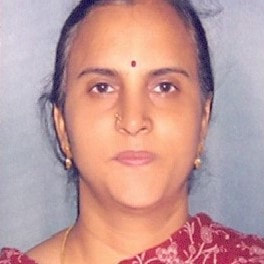
Dr. Vasantha Lakshmi Mutnuri, BAMS, MD-Ayu, Telangana, India - completed MD. Dravyaguna and currently working as senior medical officer having 28 yrs of clinical experience and 2 years experience as Associate professor, Government Ayurvedic College, Hyderabad, India.
Topic: Concepts of Gut health in Ayurveda
Abstract: A balanced and diverse micro biome is critical for maintaining health and immunological balance. This dysbiosis caused by different forces like food, moods, environmental forces, stress, age, medication, sleep, exercise will cause many problems in gut and other area of body. 2 The health of the gut is the health of the person. 90% of diseases entry is mouth only. To overcome the diseases, to keep its commitment towards health, The Ayurvedic nutraceutical science gave dietary resume. Most of the Ayurveda concepts are based on gut health - those are Ama, Tridosha theory, Kshaya- vruddi siddantha, Pachmahabutha concepts, and Prakruthi. All Ayurveda classics classify the substances into two categories 1.) Food (Ahara dravya) 2. Medicine (oushadha dravya), emphasizing the importance of the food as a medicine in keeping gut health. Many panchakarma therapies, dietary resume, life style protocols are explained to protect the gut microbiota and to keep the person immunologically fit. The Ayurveda and Gut health can be divided in to mainly three categories 1. Pre-biotic 2. Pro-biotic 3. Post-biotic. In this regard a small attempt to elaborate the concepts of Ayurveda in gut health, gut -brain health is made.
Key words; Ayurveda, Ama, Tridosha siddanta, Kshaya- vruddi siddantha , Pachmahabutha concepts,and Prakruthi, Gut-health
Topic: Concepts of Gut health in Ayurveda
Abstract: A balanced and diverse micro biome is critical for maintaining health and immunological balance. This dysbiosis caused by different forces like food, moods, environmental forces, stress, age, medication, sleep, exercise will cause many problems in gut and other area of body. 2 The health of the gut is the health of the person. 90% of diseases entry is mouth only. To overcome the diseases, to keep its commitment towards health, The Ayurvedic nutraceutical science gave dietary resume. Most of the Ayurveda concepts are based on gut health - those are Ama, Tridosha theory, Kshaya- vruddi siddantha, Pachmahabutha concepts, and Prakruthi. All Ayurveda classics classify the substances into two categories 1.) Food (Ahara dravya) 2. Medicine (oushadha dravya), emphasizing the importance of the food as a medicine in keeping gut health. Many panchakarma therapies, dietary resume, life style protocols are explained to protect the gut microbiota and to keep the person immunologically fit. The Ayurveda and Gut health can be divided in to mainly three categories 1. Pre-biotic 2. Pro-biotic 3. Post-biotic. In this regard a small attempt to elaborate the concepts of Ayurveda in gut health, gut -brain health is made.
Key words; Ayurveda, Ama, Tridosha siddanta, Kshaya- vruddi siddantha , Pachmahabutha concepts,and Prakruthi, Gut-health
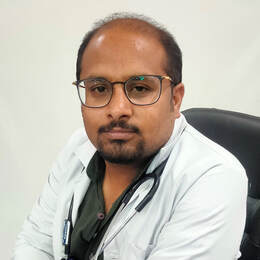
Dr. Ashish Mahajan, BAMS, MD-Ayu, Jammu & Kashmir, India - Associate Professor and Consultant Ayurvedic Physician with more than 8 years of experience in Nadi Pariksha and classical ayurvedic treatment. Treated thousands of patients of PCOD, Infertility, Thyroid disorders and diseases related to GUT. You can consult for any disorder even related to life style as proper diet chart is given for different disorders. Ayurvedic way of healthy life with proper diet and medicines is main motto. Customized medicines for patients is also there. You can check website for further details
Topic: Amalpitta and Ayurvedic Management
Abstract: Amal Pitta which can be correlated with hyperacidity or acid peptic disorder is most common and underrated condition having prevalence in modern society globally. Amal refers to a particular type of taste equated with sour taste which causes excessive salivary secretions where as Pitta is a chemical substance present in body mainly responsible for maintenance of the process of digestion. Combining both these words we get a term Amalpitta which denotes a condition or disease in which sourness of Pitta gets increased. In this presentation we try to give historical review of Amalpitta, Etiological factors of Amalpitta, Sign and symptoms of Amalpitta, Differential Diagnosis of Amalpitta Treatment of Amalpitta including kitchen remedies and Do's and Don't in Amalpitta.
Topic: Amalpitta and Ayurvedic Management
Abstract: Amal Pitta which can be correlated with hyperacidity or acid peptic disorder is most common and underrated condition having prevalence in modern society globally. Amal refers to a particular type of taste equated with sour taste which causes excessive salivary secretions where as Pitta is a chemical substance present in body mainly responsible for maintenance of the process of digestion. Combining both these words we get a term Amalpitta which denotes a condition or disease in which sourness of Pitta gets increased. In this presentation we try to give historical review of Amalpitta, Etiological factors of Amalpitta, Sign and symptoms of Amalpitta, Differential Diagnosis of Amalpitta Treatment of Amalpitta including kitchen remedies and Do's and Don't in Amalpitta.
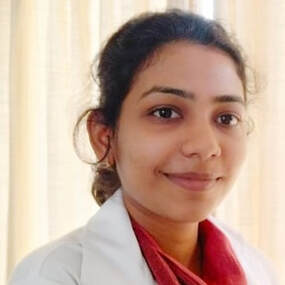
Dr. Jeena George, BAMS, Karnataka, India - completed BAMS degree and pursuing Post Graduation from SKAMCH & RC, Banglore, Karnataka, India
Topic: Role of Satvavajaya Chikitsa in Grahani with special reference to IBS
Abstract: According to Charaka samhita the chikitsa is divided into three , daivavyapashraya, yuktivyapashraya and satvavajaya. Here satvavajaya represents uplifting the satva guna of manas, which helps to overcome the psychological illness a person is going through. Even though grahani roga is not a manasika vyadhi the results are proving that satvavajaya chikitsa is needed in shareerika vyahi too.grahani roga can be correlated to IBS, where the psychological state of individual place a major role in prognosis of treatment. This can be achieved by five methods, which are jnana, vijnana, dhairya, smriti and samaadhi. The nervous system of GIT is controlled by ENS, ANS and CNS. IBS may triggered by immune system which is affected by stress. The modern psychological approach is also a satvavajaya chikitsa which helps to uplift the mind by means of counseling, CBT and other techniques.
Key words: Grahani, Satvavajaya Chikitsa, IBS
Topic: Role of Satvavajaya Chikitsa in Grahani with special reference to IBS
Abstract: According to Charaka samhita the chikitsa is divided into three , daivavyapashraya, yuktivyapashraya and satvavajaya. Here satvavajaya represents uplifting the satva guna of manas, which helps to overcome the psychological illness a person is going through. Even though grahani roga is not a manasika vyadhi the results are proving that satvavajaya chikitsa is needed in shareerika vyahi too.grahani roga can be correlated to IBS, where the psychological state of individual place a major role in prognosis of treatment. This can be achieved by five methods, which are jnana, vijnana, dhairya, smriti and samaadhi. The nervous system of GIT is controlled by ENS, ANS and CNS. IBS may triggered by immune system which is affected by stress. The modern psychological approach is also a satvavajaya chikitsa which helps to uplift the mind by means of counseling, CBT and other techniques.
Key words: Grahani, Satvavajaya Chikitsa, IBS

Dr. Ankita Rai, BAMS, New Delhi, India - has completed B.A.M.S degree with Gold Medal from Ch. Brahm Prakash Ayurveda Charak Sansthan, New Delhi, India and pursuing MD-Ayu in Swasthavritta from All India Institute of Ayurveda, New Delhi.
Topic: Standardization of Lavan Adrak for Deepan Karma
Abstract: World is facing a drastic changes in the diseases pattern where non-communicable disease encountered the most. Faulty diet and lifestyle plays a significant role in manifestation of the disease due to Mandagni. According to dietetics of Ayurveda food must be consumed after the digestion of the previous food otherwise it will vitiates all doshas. Various drugs have been mentioned in the classics having Agnivardhak property known as Deepan Guna. They must practice prior to meal for better hunger stimulation. As per Classical text “Lavan Adrak” (Ginger and rock salt) is prescribed before meal, to improve the taste sensation and to enhance the Appetite, due to its Deepan karma but the evidences for the same are not available.
OBJECTIVE: This study has been conducted to evaluate the pH of Lavana Ardrak to establish its Deepan Karma.
METHODOLOGY: Sample of Adrak and Lavan (Rock salt) was purchased from local market. Both the sample were subjected to pH analysis individually and in combination in the Laboratory of AIIA as per API guidelines.
KEYWORDS: Agnivardhak , Deepan Karma, Lavan Adrak, Mandagni
Topic: Standardization of Lavan Adrak for Deepan Karma
Abstract: World is facing a drastic changes in the diseases pattern where non-communicable disease encountered the most. Faulty diet and lifestyle plays a significant role in manifestation of the disease due to Mandagni. According to dietetics of Ayurveda food must be consumed after the digestion of the previous food otherwise it will vitiates all doshas. Various drugs have been mentioned in the classics having Agnivardhak property known as Deepan Guna. They must practice prior to meal for better hunger stimulation. As per Classical text “Lavan Adrak” (Ginger and rock salt) is prescribed before meal, to improve the taste sensation and to enhance the Appetite, due to its Deepan karma but the evidences for the same are not available.
OBJECTIVE: This study has been conducted to evaluate the pH of Lavana Ardrak to establish its Deepan Karma.
METHODOLOGY: Sample of Adrak and Lavan (Rock salt) was purchased from local market. Both the sample were subjected to pH analysis individually and in combination in the Laboratory of AIIA as per API guidelines.
KEYWORDS: Agnivardhak , Deepan Karma, Lavan Adrak, Mandagni
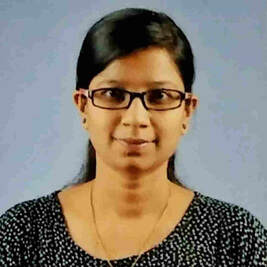
Dr. Akshata Kichadi, BAMS, MD-Ayu, Karnartaka, India - Completed BAMS from KLE’s B M Kankanwadi Ayurveda mahavidyalaya, Belgavi, Karnataka, MD-Ayu from S D M Ayurvedic medical college, Hassan. Currently working as Assistant professor in department of Rachana Shareera in S B S Ayurvedic medical college, Mundargi, Karnataka. She is a member of AAPNA.
Topic: Ayurvedic management of irritable bowel syndrome
Abstract: Irritable bowel syndrome is one of the most happening condition because of various life style changes in modern era. Ayurveda mentions Grahani as one of the condition majorly occurring because of deranged Agni. Various treatment procedures like use of takra grita in grahani is been mentioned. This presentation will deal with all the treatment principles of grahani in detail.
Topic: Ayurvedic management of irritable bowel syndrome
Abstract: Irritable bowel syndrome is one of the most happening condition because of various life style changes in modern era. Ayurveda mentions Grahani as one of the condition majorly occurring because of deranged Agni. Various treatment procedures like use of takra grita in grahani is been mentioned. This presentation will deal with all the treatment principles of grahani in detail.
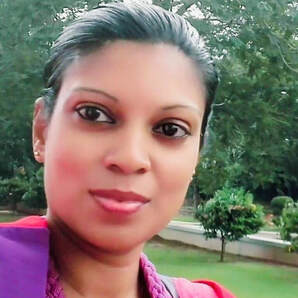
Dr. H.K.B.M.S. Karunaratne, BAMS, MD-Ayu, Colombo, Sri Lanka - is working as a Senior Lecturer, Department of Cikitsa, Faculty of Indigenous Medicine, Gampaha Wickramarachchi University of Indigenous Medicine, Sri Lanka.MD (Ayu) Swastavritta & Yoga, IIm, University of Colombo, Sri Lanka, PG Diploma in Health Development, Faculty of Medicine, University of Colombo, Sri Lanka.
BAMS -01st Class honors, GWAI, University of Kelaniya.
Topic: Yoga Therapy for Amlapitta (Gastritis / Acid Peptic Disease / Hyperacidity)
Abstract: Amlapitta is a common disease of the gastrointestinal system. It was described in various Ayurvedic texts. The cardinal features of this disease are indigestion, heart and throat burn, and sour and bitter belching. Marjaryasana (cat/cow pose), Vajrasana (Thunderbolt pose), and Ardha Matsyendrasana (Half fish pose) can be used to treat this disease condition.Seethali and Seethkaree Pranayama are also beneficial to get rid of this disease. Vamana Dhauti, Vastra Dhauti, and Yogic meditation are effective in clinical practice for patients with Amlapitta.
BAMS -01st Class honors, GWAI, University of Kelaniya.
Topic: Yoga Therapy for Amlapitta (Gastritis / Acid Peptic Disease / Hyperacidity)
Abstract: Amlapitta is a common disease of the gastrointestinal system. It was described in various Ayurvedic texts. The cardinal features of this disease are indigestion, heart and throat burn, and sour and bitter belching. Marjaryasana (cat/cow pose), Vajrasana (Thunderbolt pose), and Ardha Matsyendrasana (Half fish pose) can be used to treat this disease condition.Seethali and Seethkaree Pranayama are also beneficial to get rid of this disease. Vamana Dhauti, Vastra Dhauti, and Yogic meditation are effective in clinical practice for patients with Amlapitta.

Leah Quirk, Florida, USA - an Ayurvedic Health Consultant and Shamanic Energy Worker. My business is Soul Natural Health. I work with diet, lifestyle, herbs and metaphysical practices to guide the body to a state of healing. I work to treat and identify the root cause of health issues rather than symptom management. I utilize my psychic intuitive gifts, astrology, the law of attraction and the science of Ayurveda to understand my clients as whole and help them bring more awareness into self. I hope to empower other's struggles as opportunities for growth and a higher understanding. I am ascension guide that understands duality is necessary for soul evolution. The more we rid the body of negativity and unnatural substances we are able to reach a more enlightened state of being, living a healthy, joyful life.
Topic: Gluten Sensitivity
Abstract: My presentation will be on gluten sensitivity. We live in different times today where a lot of what we think we are consuming is natural but it is not. There is a reason so many people are becoming sensitive to gluten, issues that were not well known of in the past. A lot of this stems to the pesticides and commercial farmland practices taking a toll on our bodies, where people will already compromised Agni and Ojas are unable to break these chemicals down. There are many cardinal signs easily identified on people with gluten intolerance. I find many people are struggling with this spending their entire lives with doctors, never being asked what they eat or relating it to gluten. Some people's mental health conditions can also be traced back to gluten intolerance. It is not just a matter of removing gluten from the diet but incorporating Ayurvedic herbs to help heal and repair the gut.
Topic: Gluten Sensitivity
Abstract: My presentation will be on gluten sensitivity. We live in different times today where a lot of what we think we are consuming is natural but it is not. There is a reason so many people are becoming sensitive to gluten, issues that were not well known of in the past. A lot of this stems to the pesticides and commercial farmland practices taking a toll on our bodies, where people will already compromised Agni and Ojas are unable to break these chemicals down. There are many cardinal signs easily identified on people with gluten intolerance. I find many people are struggling with this spending their entire lives with doctors, never being asked what they eat or relating it to gluten. Some people's mental health conditions can also be traced back to gluten intolerance. It is not just a matter of removing gluten from the diet but incorporating Ayurvedic herbs to help heal and repair the gut.
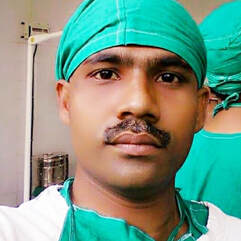
Dr. Sumedh Wasnik, BAMS, MS-Ayu, Karnataka, India - currently working as a professor, post graduate and Doctoral program guide and head of department of surgery in Pravara institute of medical sciences. He is academic and clinical experience of 20 yrs. He has submitted about 50 research publication with me. more than 500 seminars / conferences / workshop / webinars have been attended / participated by me. till date i have performed more than 20000 operative procedures. He is interested in dealing with non healing ulcers/wounds.
Topic: Non healing ulcers of Gut
Abstract: Ulcers contributes around 1% population globally. non healing ulcers have been a major challenge for surgeons since ancient time. Non-healing ulcers are a major health problem worldwide and have great impact at personal, professional and social levels, with high cost in terms of human and material resource. integrated approach has been a major breakthrough for the treatment of non-healing and diabetic foot ulcers, as it is an easy and cost-effective method, and provides the necessary growth factors that enhance tissue healing. Chronic non-healing wounds are wounds that have the failed to progress through a timely sequence of repair, or one that proceeds through the wound healing process without restoring anatomic and functional results .Typically, there is a physiologic impairment that slows or prevents wound healing. Although there is no clear consensus in the duration of a wound that defines chronicity, a range of 4 weeks to 3 months has been used to define chronic wounds in the literature. The Wound Healing Society classifies chronic wounds into 4 major categories:-pressure ulcers, diabetic foot ulcers, venous ulcers, and arterial insufficiency ulcers.
Topic: Non healing ulcers of Gut
Abstract: Ulcers contributes around 1% population globally. non healing ulcers have been a major challenge for surgeons since ancient time. Non-healing ulcers are a major health problem worldwide and have great impact at personal, professional and social levels, with high cost in terms of human and material resource. integrated approach has been a major breakthrough for the treatment of non-healing and diabetic foot ulcers, as it is an easy and cost-effective method, and provides the necessary growth factors that enhance tissue healing. Chronic non-healing wounds are wounds that have the failed to progress through a timely sequence of repair, or one that proceeds through the wound healing process without restoring anatomic and functional results .Typically, there is a physiologic impairment that slows or prevents wound healing. Although there is no clear consensus in the duration of a wound that defines chronicity, a range of 4 weeks to 3 months has been used to define chronic wounds in the literature. The Wound Healing Society classifies chronic wounds into 4 major categories:-pressure ulcers, diabetic foot ulcers, venous ulcers, and arterial insufficiency ulcers.
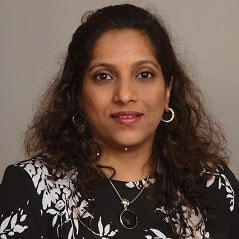
Dr. Anjum G Nadaf, BAMS, LMT, RAD, FAAPNA, New Jersey, USA - International Speaker, Registered Ayurvedic Doctor, Licensed Massage Therapist, Certified Nutritionist -Level 2, RYT -200 HRS, Certified Therapeutic RYT, Certified Panchakarma Technician, PGDP-India, Recipient of Atreya Award 2020- Excellence in Clinical Practice from AAPNA, Director OF New Jersey AAPNA, She is a founder of Anjum Ayurveda LLC, Practicing and teaching Ayurveda 15 plus years in the US. She holds a Bachelor of Ayurvedic medicine and surgery degree from Rajiv Gandhi University, Bangalore. Area of expertise includes pain management, chronic health conditions: healthy weight management, digestive imbalances, women’s health, kid's health, and anti-aging therapies. Actively participating in many organizations and dedicating her contribution towards the spread of Ayurveda in the west. She is calm, composed, compassionate, empathy that makes her stand out.
Topic: H Pylori Perspective and Management in Ayurveda
Abstract: Helicobacter pylori, previously known as Campylobacter pylori, is a gram-negative, microaerophilic, spiral bacterium without the nucleus usually found in the stomach H. pylori is a common type of bacteria that grows in the digestive tract and has a tendency to attack the stomach lining. It infects the stomachs of roughly 60 percent of the trusted sources of the world’s adult population. The bacteria are believed to cause stomach problems when they penetrate the stomach’s mucous lining and generate urea substances that neutralize stomach acids. This makes the stomach cells more vulnerable to harsh acids. Stomach acid and H. pylori together irritate the stomach lining and may cause ulcers in your stomach or duodenum, which is the first part of your small intestine. H. pylori infection symptoms include excessive burping feeling bloated nausea heartburn fever lack of appetite, or anorexia unexplained weight loss.
Topic: H Pylori Perspective and Management in Ayurveda
Abstract: Helicobacter pylori, previously known as Campylobacter pylori, is a gram-negative, microaerophilic, spiral bacterium without the nucleus usually found in the stomach H. pylori is a common type of bacteria that grows in the digestive tract and has a tendency to attack the stomach lining. It infects the stomachs of roughly 60 percent of the trusted sources of the world’s adult population. The bacteria are believed to cause stomach problems when they penetrate the stomach’s mucous lining and generate urea substances that neutralize stomach acids. This makes the stomach cells more vulnerable to harsh acids. Stomach acid and H. pylori together irritate the stomach lining and may cause ulcers in your stomach or duodenum, which is the first part of your small intestine. H. pylori infection symptoms include excessive burping feeling bloated nausea heartburn fever lack of appetite, or anorexia unexplained weight loss.
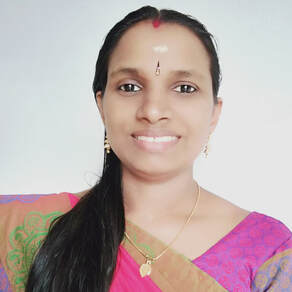
Dr. Dhanya Radhakrishnan, BAMS, Kerala, India - hailing from traditional Ayurveda and astrology Family, having more the 14 years of teaching and clinical experience. Currently working as a senior medical officer and director of Kerala Ayurveda Academy, Kochin, India. Completed the degree in Ayurvedic Medicine from Rajeev Gandhi University of Health Science, Karnataka. my present focus is treating patients and training students in the field of Ayurveda thus to propagate the knowledge of Ayurveda
Topic: Ama / indigestion - Ayurvedic view and its management
Abstract: As per Ayurveda the indigestion can be co-related with Aama, can be considered as the metabolic disturbance. The balance stage of Agni is very important in case of the management of Aama, so here would like to explain about the clinical management of Aama and importance of panchakarma in treatment of Aama.
Topic: Ama / indigestion - Ayurvedic view and its management
Abstract: As per Ayurveda the indigestion can be co-related with Aama, can be considered as the metabolic disturbance. The balance stage of Agni is very important in case of the management of Aama, so here would like to explain about the clinical management of Aama and importance of panchakarma in treatment of Aama.
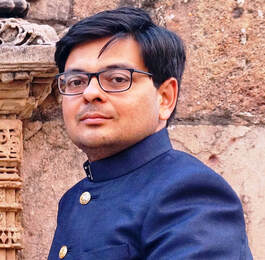
Dr. Krup Vasavda, BAMS, MD-Ayu, Gujarat, India - is working as Associate professor Department of Agadtantra in J S Ayurveda College, Nadiad, Gujarat, India. Presently he is pursuing Ph D from Parul University, Vadodara. He is a Review Board Member Gavin Publication and 8th WAC. He obtained his UG from Govt. Akhandanand Ayurveda College & Hospital, Ahmedabad, and Gujarat, India. He obtained his PG from Sri Dharmasthala Manjunatheshwara College of Ayurveda & Hospital, Hassan, India. He is expert in yoga and naturopathy. He is a practicing Ayurvedic physician and specialty in Ayurvedic management of Diabetes mellitus. He is a specialist of pain management by various Ayurveda therapies. He has published many papers in nation and international peer reviewed journals. He is Post graduate Diploma in Clinical Research and Clinical Data Management from ICBio, Bangalore. He is a supporting member of AAPNA, USA.
Topic: Irritable Bowel Syndrome - Ayurvedic Management
Abstract: The rapid increase in the prevalence of Grahani or the irritable bowel syndrome is a matter of great concern now days. Grahani is disease it afflicts huge population worldwide especially in developing countries and associated with improper food habits along with demanding lifestyle. Pathogenesis of Grahani roga works around Agni which related to impaired digestive function of digestive fire. IBS is a chronic bowel disorder that significantly impacts people’s lives. Till date no clear diagnostic markers and treatment exist for IBS. The cause of IBS remains a mystery and its treatment continues to be a real challenge. Ayurveda has the strong theoretical backup in the genesis of IBS. Acharyas have mentioned many herbal preparations and therapies for IBS. So here an attempt is made to summarized ayurveda management for Grahani roga (IBS).
Topic: Irritable Bowel Syndrome - Ayurvedic Management
Abstract: The rapid increase in the prevalence of Grahani or the irritable bowel syndrome is a matter of great concern now days. Grahani is disease it afflicts huge population worldwide especially in developing countries and associated with improper food habits along with demanding lifestyle. Pathogenesis of Grahani roga works around Agni which related to impaired digestive function of digestive fire. IBS is a chronic bowel disorder that significantly impacts people’s lives. Till date no clear diagnostic markers and treatment exist for IBS. The cause of IBS remains a mystery and its treatment continues to be a real challenge. Ayurveda has the strong theoretical backup in the genesis of IBS. Acharyas have mentioned many herbal preparations and therapies for IBS. So here an attempt is made to summarized ayurveda management for Grahani roga (IBS).
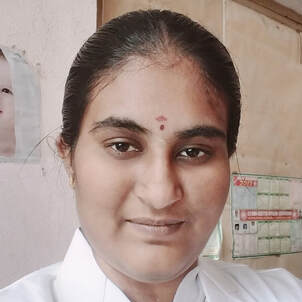
Dr. Neelima Pamulapati, BAMS, Andhra Pradesh, India - completed B.A.M.S. in 2019 in Dr.N.R.S.Government Ayurvedic College. Presently pursuing Post graduation in same college in department of Kayachikitsa. Previously i participated in international webinar of immunology and attended various workshops on Obesity, Diabetes mellitus.
Topic: Amla Pitta - Ayurvedic Management
Abstract: Now-a-days Amlapitta (Gastritis) is seen in large number of people in society due to improper intake of diet & intake of incompatible combination of food articles which are dealt in ayurveda. Amlapitta first time elaborately explained in kashyapa samhitha. clinical features of amlapitta includes indigestion, fatigue, nausea, bitter & sour burping, heaviness, burning sensation in heart& throat & Anorexia. Management includes avoiding causative factors, sodhana chikitsa which includes Vamana, virechana etc; Samana chikitsa, following pathyapathya along with practice of Yoga (includes asana, pranayama & mudra).
Topic: Amla Pitta - Ayurvedic Management
Abstract: Now-a-days Amlapitta (Gastritis) is seen in large number of people in society due to improper intake of diet & intake of incompatible combination of food articles which are dealt in ayurveda. Amlapitta first time elaborately explained in kashyapa samhitha. clinical features of amlapitta includes indigestion, fatigue, nausea, bitter & sour burping, heaviness, burning sensation in heart& throat & Anorexia. Management includes avoiding causative factors, sodhana chikitsa which includes Vamana, virechana etc; Samana chikitsa, following pathyapathya along with practice of Yoga (includes asana, pranayama & mudra).
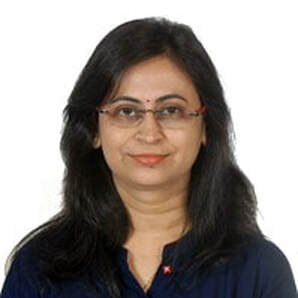
Dr. Kirti Tare, BAMS, MS-Ayu, Maharashtra, India - founder and practitioner, Arogyam Holistic Wellness Clinic, Mumbai. Common Indigestion problems like Hyperacidity and Respiratory Infections to the rare diseases like ITP, VUR, Liver dysfunction, Chronic Renal Diseases, behavioral issues like ADHD, Autism, Drug Addiction, Diabetes Management, and Diabetes reversal, etc contribute to my clinical experience of 15 years.
Topic: Clinical manifestation of Ajeerna (Indigestion)
Abstract: A perfect equilibrium of Panchabhautik elements has been attributed to proper body functioning, whereas their slightest imbalance can lead to one or several interrelated diseases. However, it has been identified that most diseases find their roots in Manda Agni and if the pathology is treated at its first occurrence, then the diseases usually don’t progress. I aim to present the application of these two fundamental principles observed in clinical practice. The result of Agnimandya is Ajeerna or Indigestion which forms the basis of a majority of Acute or Chronic diseases. It is observed that it manifests much earlier than the actual clinical presentation of a disease. The signs and symptoms of Ajeerna are usually considered non-significant due to its inability to disrupt our routine to a larger extent and hence which is often neglected and treated by over-the-counter symptomatic medications. This condition eventually becomes persistent and chronic, leading to derangement of the entire metabolism. In parallel, several chronic diseases are observed to be associated with Ajeerna. As per our observations, even chronic metabolic disorders can be resolved relatively in a shorter span if the underlying Ajeerna is treated. The presentation includes observations noted in clinical studies wherein the principle of treatment for Agnimandya is applied, focused on detection of Ajeerna at its earliest stage. Agnimandya, associated with Ajeerna was used as a therapeutic measure for either eliminating or alleviating the progression of underlying diseases.
Topic: Clinical manifestation of Ajeerna (Indigestion)
Abstract: A perfect equilibrium of Panchabhautik elements has been attributed to proper body functioning, whereas their slightest imbalance can lead to one or several interrelated diseases. However, it has been identified that most diseases find their roots in Manda Agni and if the pathology is treated at its first occurrence, then the diseases usually don’t progress. I aim to present the application of these two fundamental principles observed in clinical practice. The result of Agnimandya is Ajeerna or Indigestion which forms the basis of a majority of Acute or Chronic diseases. It is observed that it manifests much earlier than the actual clinical presentation of a disease. The signs and symptoms of Ajeerna are usually considered non-significant due to its inability to disrupt our routine to a larger extent and hence which is often neglected and treated by over-the-counter symptomatic medications. This condition eventually becomes persistent and chronic, leading to derangement of the entire metabolism. In parallel, several chronic diseases are observed to be associated with Ajeerna. As per our observations, even chronic metabolic disorders can be resolved relatively in a shorter span if the underlying Ajeerna is treated. The presentation includes observations noted in clinical studies wherein the principle of treatment for Agnimandya is applied, focused on detection of Ajeerna at its earliest stage. Agnimandya, associated with Ajeerna was used as a therapeutic measure for either eliminating or alleviating the progression of underlying diseases.
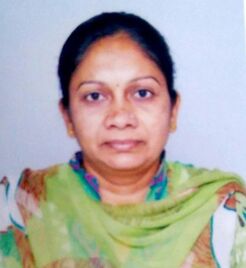
Dr. Shilpa Donga, BAMS, MD-Ayu, PhD-Ayu, Gujarat, India - Qualified as MD (Ayurved) & PhD (Ayurved) in the subject of Prasutitantra & Streeroga (Gynec & Obs.) from Institute for Postgraduate teaching and research in Ayurveda, Jamnagar. She is presently working as Professor, Department of Prasutitantra & Streeroga, Institute of Teaching & Research in Ayurveda (ITRA) (Institute of National Importance), Jamnagar with more than 20 years of experience in the field of Prasttantra & Streeroga. She has guided more than 30 PG Scholars and 5 Ph.D. Scholars. Published many research articles in peer reviewed scientific journals.
Topic: Gut health - Brain power through Basti for restoring female reproductive health
Abstract: The gut-brain interaction involves communication between the enteric nervous system (ENS), and the CNS through endocrine and neural pathways (parasympathetic nerves and sympathetic nerves). The endogenous opioids are a group of peptides, in the ENS especially endorphins (β endorphin) play an important role in female reproductive functions through the inhibitory effect on GnRH secretion. In Ayurveda, Vata Dosha is the major regulator of gut homeostasis. The integrity of Gut/Koshta and Pakwashaya ensure normalcy of Apana Vata and Samana Vata, which in turn, maintain gut homeostasis by enteric hormone release, etc. disturbances in Apana Vata should negatively affect multiple systems especially the reproductive system in females. Ayurvedic system of medicine offers Panchakarma procedures especially Basti to restore gut homeostasis by regulating Vata and thus reinstate normal reproductive function.
Topic: Gut health - Brain power through Basti for restoring female reproductive health
Abstract: The gut-brain interaction involves communication between the enteric nervous system (ENS), and the CNS through endocrine and neural pathways (parasympathetic nerves and sympathetic nerves). The endogenous opioids are a group of peptides, in the ENS especially endorphins (β endorphin) play an important role in female reproductive functions through the inhibitory effect on GnRH secretion. In Ayurveda, Vata Dosha is the major regulator of gut homeostasis. The integrity of Gut/Koshta and Pakwashaya ensure normalcy of Apana Vata and Samana Vata, which in turn, maintain gut homeostasis by enteric hormone release, etc. disturbances in Apana Vata should negatively affect multiple systems especially the reproductive system in females. Ayurvedic system of medicine offers Panchakarma procedures especially Basti to restore gut homeostasis by regulating Vata and thus reinstate normal reproductive function.

Dr. Vaishali Vasavda, BAMS, MS-Ayu, Gujarat, India - is working as Assistant professor Department of Prasuti Tantra and Stree Roga, J S Ayurveda College, Nadiad, Gujarat, India. She is an international Speaker too. She is a member in Syllabus Drafting Committee, CCIM, India. She is an Post graduate examiner in Various other universities. She obtained her UG and PG from Sri Kalabyraveshwara Swamy Ayurvedic Medical College and Research Centre, Bangalore, Karnataka, India. Her Subject of Specialization is Prasuti Tantra and Stree Roga. She is practicing Ayurvedic physician and specialty in Ayurvedic management of Gynecological Disorders. Her subject of interest is common gynaecological disorders, genetics, and Garbhasamskara. She has an expertise in pain management by various Ayurveda therapies. She has published many papers in national and international peer reviewed journals. Dr. Vaishali Vasavda is a supporting member of AAPNA, USA.
Topic: Management of constipation during pregnancy
Abstract: Constipation refers to persistent, difficult, infrequent or seemingly incomplete defecation. It is a symptom not a disease. In general population incidences varies from 2-3% and it is common in females than in males due to some of the reasons like Anatomical relation - Female reproductive system and excretory system are closely related in woman. In pregnancy intestinal motility reduces due to high progesterone levels and Constipation occurs. To treat Constipation in pregnancy is a need of an hour. Ayurveda believes in dosha theory of diseases. Constipation occurs due to vitiation of vata dosha. Keeping doshas in normal state is the main aim of pregnancy. Aushadha mentioned in classes will definitely help in normalizing vata and prevent constipation.
Topic: Management of constipation during pregnancy
Abstract: Constipation refers to persistent, difficult, infrequent or seemingly incomplete defecation. It is a symptom not a disease. In general population incidences varies from 2-3% and it is common in females than in males due to some of the reasons like Anatomical relation - Female reproductive system and excretory system are closely related in woman. In pregnancy intestinal motility reduces due to high progesterone levels and Constipation occurs. To treat Constipation in pregnancy is a need of an hour. Ayurveda believes in dosha theory of diseases. Constipation occurs due to vitiation of vata dosha. Keeping doshas in normal state is the main aim of pregnancy. Aushadha mentioned in classes will definitely help in normalizing vata and prevent constipation.
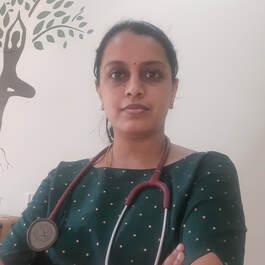
Dr. Niveditha Srinivasamurthy, BAMS, Karnataka, India - graduated with BAMS, from Government Ayurveda Medical College, Bangalore. She was one of the few selected for the prestigious GCP course, under the acclaimed FRHLHT institute through which she pursued a 6.month intensive training on Ayurveda clinical practice under the best doctors in India. She served as the center head ,panchakarma unit in Sri Sri Ayurveda for 7 years and now runs her successful clinical practice Dr Niveditha's Ayurveda in Bangalore. She has been a part of over 150 televised talks on Ayurveda. She has been a ambassador of Ayurveda on various prestigious platforms like Institute of world culture, Amway India, Rotary club, All India radio and many more activities.
Topic: Ayurvedic Management of IBS
Abstract: She will discuss -
1. IBS clinical presentations
2. Possible causes for IBS
3. Understanding it Ayurveda on the lines of Agni and dosha
4 Ayurvedic approach to IBS treatment
Topic: Ayurvedic Management of IBS
Abstract: She will discuss -
1. IBS clinical presentations
2. Possible causes for IBS
3. Understanding it Ayurveda on the lines of Agni and dosha
4 Ayurvedic approach to IBS treatment

Dr. Zenab Damaniya, BAMS, Maharashtra, India - graduated in BAMS and post graduated in PGDCC (Germany), CCH, CSVD, CGO. Running my ayurveda wellness clinic at opera house and Peddar road in Mumbai, India. Obesity & Skin specialist. Life coach and motivational speaker. She is Certified in Genecology & Obstetrics, Post graduate diploma in Clinical Cosmetology (Germany), Certified in Child Health care , Certified in skin & Venereal diseases.
Topic: Ayurvedic treatment for constipation
Abstract: Constipation is a worldwide health issue due to increasing sedentary lifestyle for which root cause need to be targeted and treated accordingly. And in Ayurveda there is a permanent solution for constipation
Topic: Ayurvedic treatment for constipation
Abstract: Constipation is a worldwide health issue due to increasing sedentary lifestyle for which root cause need to be targeted and treated accordingly. And in Ayurveda there is a permanent solution for constipation
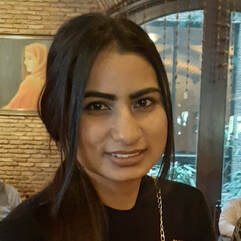
Dr. Sakshi, BAMS, Punjab, India - completed BAMS from Dayanand Ayurvedic College, Jalandhar, Punjab and pursuing MD Ayurveda in same college in Panchkarma Department. I participated in many international and national webinar on infertility, ayurvedic pathology and also attended National CME on Panchkarma organized by RAV. I am a member of Vishwa Ayurved Parishad and supporting member of AAPNA,USA
Topic: Management of IBS (Grahani) with Basti karma
Abstract: Many people suffer from either constipation or diarrhea at some point in life. Sometimes some people suffer from both constipation and diarrhea and this can be termed as IBS or Irritable Bowel Syndrome. When one suffers from mild symptoms they may not go to a doctor, but when symptoms get severe, constipation and diarrhea may be accompanied by other symptoms such as abdominal cramps, bloating, abdominal pain, sometimes chronic constipation or chronic diarrhea. According to Ayurveda IBS falls under the category of a certain disease called Grahani which is disturbed functions of the bowels and intestines. Grahani (or duodenum) is the seat of Agni (digestive fire). Food is held here until it is completely digested by Agni (or digestive fire). After the food is completely digested, it then passes on to the next part of the digestive tract for absorption, but if the Agni is weak, then the food is not completely digested and passes on in a half digested form. It leads to Ama formation. These toxins, or Ama, will further combine with normal food leading to foul smelling stools. Hence one will also find Ama accumulation in the body when one suffers from IBS.
Topic: Management of IBS (Grahani) with Basti karma
Abstract: Many people suffer from either constipation or diarrhea at some point in life. Sometimes some people suffer from both constipation and diarrhea and this can be termed as IBS or Irritable Bowel Syndrome. When one suffers from mild symptoms they may not go to a doctor, but when symptoms get severe, constipation and diarrhea may be accompanied by other symptoms such as abdominal cramps, bloating, abdominal pain, sometimes chronic constipation or chronic diarrhea. According to Ayurveda IBS falls under the category of a certain disease called Grahani which is disturbed functions of the bowels and intestines. Grahani (or duodenum) is the seat of Agni (digestive fire). Food is held here until it is completely digested by Agni (or digestive fire). After the food is completely digested, it then passes on to the next part of the digestive tract for absorption, but if the Agni is weak, then the food is not completely digested and passes on in a half digested form. It leads to Ama formation. These toxins, or Ama, will further combine with normal food leading to foul smelling stools. Hence one will also find Ama accumulation in the body when one suffers from IBS.

Dr. C.B. Leenu, BAMS, MD-Ayu, Karnataka, India - is an Ayurvedic Practitioner, presently working as Assistant Professor and Consultant at SDM College of Ayurveda & Hospital, Hassan. She completed her graduation & post graduation from SDM College of Ayurveda & Hospital, Udupi with 3rd Rank in the speciality of Kayachikitsa from the prestigious Rajiv Gandhi University of Health Sciences, Bangalore, India. She has presented 12 Research papers at various International & National conferences and bagged best scientific paper at 7th World Ayurveda Congress, Kolkata in 2016. She served as the Coordinator for the 20th Annual Conference of Indian society of Wound Management – WOUNDCON 2018, held at SDM College of Ayurveda & Hospital, Hassan. She was a resource person for the Short-Term course in Ayurveda for the Russian and German delegates. She is specialized in Rasayana Therapy, Panchakarma, Marma Chikitsa in Entrapment Neuropathies, Therapeutic Yoga and has found success in Geriatric Care & Rehabilitation. She is trained in Nadi Vignyan, Marma Chikitsa & Acupuncture. She is a certified yoga trainer from the Ashtanga Yoga Mysore, affiliated to Yoga alliance, USA. She is one of the disciples of Legendary Teacher of Ayurveda, Late Dr G Shrinivas Acharya, of SDM College of Ayurveda & Hospital, Udupi.
Topic: Paralleling with the diagnosis of Atma satmya virudha nimittaja vyadhi for Food Allergy
Abstract: With a boon of advancements in Science & technologies, the 21st century is on the surge of newer diseases. The biggest global health threats of this century is the uprising trends in the incidence of allergic conditions & auto-immune diseases. Many epidemiological surveys, demonstrate a two-fold increase in the prevalence of allergic conditions during the past 2 decades. Therefore, it is the need of the hour to scrutinise this clinical condition at the earliest and treat it accordingly. Perhaps, this clinical condition has been identified & detailed thousands of years ago by our Acharyas. The whole sequel of allergic phenomenon is best explained by the perception of आत्म सात्म्य विरुद्ध निमित्तज व्याधि. Satmya and Asatmya are the two phenomena related to the body response against external factors either related to the food, behaviour or other environmental factors. Spontaneous or habitual exposure to external factors beget a response which is complementary to the health is comprehended as Satmya. Contrary to this the external factors when exhibit a response that are derogatory to the health is called as Asatmya. This paper highlights the concept of food allergy from the Ayurvedic perspective with the help of evidence based study.
Topic: Paralleling with the diagnosis of Atma satmya virudha nimittaja vyadhi for Food Allergy
Abstract: With a boon of advancements in Science & technologies, the 21st century is on the surge of newer diseases. The biggest global health threats of this century is the uprising trends in the incidence of allergic conditions & auto-immune diseases. Many epidemiological surveys, demonstrate a two-fold increase in the prevalence of allergic conditions during the past 2 decades. Therefore, it is the need of the hour to scrutinise this clinical condition at the earliest and treat it accordingly. Perhaps, this clinical condition has been identified & detailed thousands of years ago by our Acharyas. The whole sequel of allergic phenomenon is best explained by the perception of आत्म सात्म्य विरुद्ध निमित्तज व्याधि. Satmya and Asatmya are the two phenomena related to the body response against external factors either related to the food, behaviour or other environmental factors. Spontaneous or habitual exposure to external factors beget a response which is complementary to the health is comprehended as Satmya. Contrary to this the external factors when exhibit a response that are derogatory to the health is called as Asatmya. This paper highlights the concept of food allergy from the Ayurvedic perspective with the help of evidence based study.

Dr. Rammohan Rao, PhD, CAS, RYT, California, USA - presently serves as a Principal Research Scientist at Apollo Health which uses a systems-based, integrative approach to prevent, treat, or reverse Alzheimer’s disease. In addition to being a Neuroscientist, Ram is also a certified Ayurveda Practitioner and a registered yoga teacher from Yoga Alliance. Ram serves as a faculty teacher at the California College of Ayurveda and is the author of a recently published bestselling book-“Good Living Practices”-The best from Ayurveda, Yoga and Modern Science For Achieving Optimal Health, Happiness and Longevity.
Topic: Brain Gut Colon Nexus
Abstract: The body of evidence linking emotions and healthy eating to the gut, colon and brain is growing rapidly. Poor digestion leads to digestive issues that affect the gut, colon and brain. Emotional issues can in turn affect the structure and function of both the gut and colon. Having emotional, gut and colon issues is neither normal nor healthy. In the Ayurveda system of medicine, there is a close link between the brain, gut and colon. This realization helps to take corrective measures to restore optimal function of the brain, gut and colon. My talk will focus on understanding the role of the brain-gut-colon nexus in health and disease and provide a scientific understanding of key concepts in Ayurveda related to these systems.
Topic: Brain Gut Colon Nexus
Abstract: The body of evidence linking emotions and healthy eating to the gut, colon and brain is growing rapidly. Poor digestion leads to digestive issues that affect the gut, colon and brain. Emotional issues can in turn affect the structure and function of both the gut and colon. Having emotional, gut and colon issues is neither normal nor healthy. In the Ayurveda system of medicine, there is a close link between the brain, gut and colon. This realization helps to take corrective measures to restore optimal function of the brain, gut and colon. My talk will focus on understanding the role of the brain-gut-colon nexus in health and disease and provide a scientific understanding of key concepts in Ayurveda related to these systems.

Dr. Andhrika Kondeti, BAMS, RAD, LMT, RYT, MH, Virginia, USA - is also a Licensed Massage Therapist in the state of Virginia, USA, and a Registered Advanced Yoga Teacher. She is certified as a Master Herbalist and Nutritional Consultant. After she completed her degree program in Ayurveda she had the pleasure of working with several clients in India, the USA, and from other parts of the world for the past twenty-five years! Often times we address disease once it has made itself present in the body. As an Ayurveda practitioner, she offers Ayurveda Consultations and educates people about how to prevent disease and improve their overall quality of life in a natural way. By working with them on eating habits, lifestyles and aligning with the changes of season, a more organic and wholesome lifestyle is achieved. As a licensed Massage therapist, she incorporates Ayurvedic Massage Therapies, Shirodhara, and Panchakarma therapies in her regular practice. Andhrika also specializes in Marma Therapy and Pulse Reading. She worked as a Yoga Teacher, training students for the Registered Yoga Teacher program at Lotus School of Integrated Professions in Virginia, for over four years. As an experienced and Advanced Yoga Teacher, she offers group and private sessions based on individual Dosha types. Andhrika is deeply passionate about the positive effects of Yoga, Ayurveda, and Ayurvedic Massage therapies on the body, mind, and spirit along with diet and lifestyle changes to maintain health, build immunity, prevent disease and promote longevity! In 2017, Andhrika made a short film depicting the principles of Ayurveda in a dance form, ‘Bharathanatyam’, and presented it at Global Ayurveda Conferences held in Greece and Atlanta which was much applauded by one and all including the Ayurveda Elite from Ayush Department, Government of India! She was interviewed on a Radio Show in 2019 that drew a lot of attention from the local Americans to learn more about this traditional medical system from India! In 2020, she managed to attain the Proclamation by the Mayor of City of Richmond to declare Nov 13, 2020, as Ayurveda Day! Currently, Andhrika is serving as the Director of AAPNA (Association of Ayurvedic Professionals of North America) for the state of Virginia. She runs her own practice in Richmond, Virginia past thirteen years. Her Goal is to spread the awareness of Ayurveda and Yoga and make them household names so people can benefit from the knowledge of these two sister sciences!
Topic: Bulimia: Ayurvedic Management
Abstract: Bulimia nervosa is a serious, potentially life-threatening eating disorder characterized by a cycle of binge eating and compensatory behaviors such as self-induced vomiting to compensate for the effects of binge eating. Girls and women are more likely to have bulimia than boys and men are. Bulimia often begins in the late teens or early adulthood. A person with Bulimia is probably preoccupied with her weight and body shape. She may judge herself severely and harshly for her self-perceived flaws. As Bulimia is mostly related to self-image and not just about food, it can be hard to overcome. Effective treatment can help one feel better about oneself, adopt healthier eating patterns, and reverse serious complications. In Ayurveda, it is believed that maintaining a good state of health largely depends on the human’s mind-body constitution or Prakruti. This simply means we are what we eat. Thus having the right diet at the appropriate time would help avoid ama ( a poisonous substance produced because of an impaired digestive system) and keep the body free from toxins. Eating disorders are related to Agni type, stress response, and food allergies, and thus, an imbalance in the doshas (Vata, Pitta, and Kapha), can result in Bulimia. The line of treatment includes balancing the aggravated dosha, improving metabolism, strengthening the immune and nervous system, body detoxification, improving nutrition, managing stress levels and counseling. Treatments – Ayurvedic Treatment for Bulimia modalities includes Panchakarma, Internal medications, Diet, Lifestyle modifications, Yoga and Meditation.
Topic: Bulimia: Ayurvedic Management
Abstract: Bulimia nervosa is a serious, potentially life-threatening eating disorder characterized by a cycle of binge eating and compensatory behaviors such as self-induced vomiting to compensate for the effects of binge eating. Girls and women are more likely to have bulimia than boys and men are. Bulimia often begins in the late teens or early adulthood. A person with Bulimia is probably preoccupied with her weight and body shape. She may judge herself severely and harshly for her self-perceived flaws. As Bulimia is mostly related to self-image and not just about food, it can be hard to overcome. Effective treatment can help one feel better about oneself, adopt healthier eating patterns, and reverse serious complications. In Ayurveda, it is believed that maintaining a good state of health largely depends on the human’s mind-body constitution or Prakruti. This simply means we are what we eat. Thus having the right diet at the appropriate time would help avoid ama ( a poisonous substance produced because of an impaired digestive system) and keep the body free from toxins. Eating disorders are related to Agni type, stress response, and food allergies, and thus, an imbalance in the doshas (Vata, Pitta, and Kapha), can result in Bulimia. The line of treatment includes balancing the aggravated dosha, improving metabolism, strengthening the immune and nervous system, body detoxification, improving nutrition, managing stress levels and counseling. Treatments – Ayurvedic Treatment for Bulimia modalities includes Panchakarma, Internal medications, Diet, Lifestyle modifications, Yoga and Meditation.
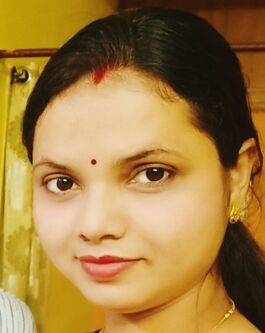
Dr. Sunitha D Yadav, BAMS, Andhra Pradesh, India - Ayurvedic practitioner with 9 years clinical experience in Ayurveda. Currently pursuing MD (Kaya chikitsa) final year from Dr. NRS Government Ayurveda College, Vijayawada, Andhra Pradesh, India.
Topic: Irritable Bowel Syndrome with special Samprapti Vighatana Chikitsa
Abstract: Irritable Bowel Syndrome has been a challenge owing to its preponderance in the present swift lifestyle conditions. Despite extensive research, an effective preventive and treatment strategy has not been developed due to its heterogenous etio-pathogenesis. "Samprapti vighatanameva chikitsa": treatment is nothing but disintegrating the pathophysiology. So, the pathophysiology will be discussed with special reference to Samana Vata and Vyana Vata to the enteric nervous system- the gut brain axis. In this paper detailed description of etio-pathogenesis and treatment shall be discussed.
Topic: Irritable Bowel Syndrome with special Samprapti Vighatana Chikitsa
Abstract: Irritable Bowel Syndrome has been a challenge owing to its preponderance in the present swift lifestyle conditions. Despite extensive research, an effective preventive and treatment strategy has not been developed due to its heterogenous etio-pathogenesis. "Samprapti vighatanameva chikitsa": treatment is nothing but disintegrating the pathophysiology. So, the pathophysiology will be discussed with special reference to Samana Vata and Vyana Vata to the enteric nervous system- the gut brain axis. In this paper detailed description of etio-pathogenesis and treatment shall be discussed.

Dr. Anupama Sarjerao, BAMS, MD (Yoga), Maharashtra, India - is an Ayurvedic and Yoga practitioner with major focus on working towards Beauty and Health of a woman. Anupama has more than 10 years of experience in Ayurvedic practices, after completion of her BAMS. She's MD in Yoga and certified Cosmetologist. Anupama has been rewarded with"Beauty with Brain" award at "Mrs.India Earth, 2019" beauty Pageant. She uses the fundamentals of Ancient Ayurveda, to improve mind and body wellness for women and children. Her major work focuses on periodic rejuvenation therapies for women using simple techniques of Ayurveda, Yoga and Meditation.
Topic: Gut-Brain Health : Building Healthy Next Generations
Abstract: "Shariram Hi Sattwamanu Vidhiyate..Satwam Cha Shariram!!"..The Healthy person is one whose body, mind and soul are in normal state. The origin of all diseases is equilibrium of body and mind, as body and mind are interconnected. Agni(metabolic process) and Gut play an important role in building immunity of body and healthy mind. Some scientists call it as"Second Brain". As nervousness or anxiety can cause constipation, an upset stomach can affect your mental health. All these symptoms are interconnected. If anything happens in guts, it sends signals to the body tissues, resulting in abnormal changes in nervous system. The main source for maintaining these systems is the "Gut, the Agni". In Ayurveda, importance of maternal gut function being practiced in sanskaras like 'Simanthonayan' during pregnancy and 'Annaprashan Vidhi' in infants. During my practice, I focus on core treatment on Gut- Brain health specially for pregnant women. It is a key for long term health of women and infants to improve Neurodevelopment, Immunological and Intestinal Health. The right practices are definitely going to build next generations, more healthy and content! Also, recent COVID-19 pandemic has put us in more challenging situation where people are struggling to balance physical and mental health. Practice of simple techniques of Ayurveda, Yoga and Meditation, is the key to balance this 'Gut-Brain Health'.
Topic: Gut-Brain Health : Building Healthy Next Generations
Abstract: "Shariram Hi Sattwamanu Vidhiyate..Satwam Cha Shariram!!"..The Healthy person is one whose body, mind and soul are in normal state. The origin of all diseases is equilibrium of body and mind, as body and mind are interconnected. Agni(metabolic process) and Gut play an important role in building immunity of body and healthy mind. Some scientists call it as"Second Brain". As nervousness or anxiety can cause constipation, an upset stomach can affect your mental health. All these symptoms are interconnected. If anything happens in guts, it sends signals to the body tissues, resulting in abnormal changes in nervous system. The main source for maintaining these systems is the "Gut, the Agni". In Ayurveda, importance of maternal gut function being practiced in sanskaras like 'Simanthonayan' during pregnancy and 'Annaprashan Vidhi' in infants. During my practice, I focus on core treatment on Gut- Brain health specially for pregnant women. It is a key for long term health of women and infants to improve Neurodevelopment, Immunological and Intestinal Health. The right practices are definitely going to build next generations, more healthy and content! Also, recent COVID-19 pandemic has put us in more challenging situation where people are struggling to balance physical and mental health. Practice of simple techniques of Ayurveda, Yoga and Meditation, is the key to balance this 'Gut-Brain Health'.
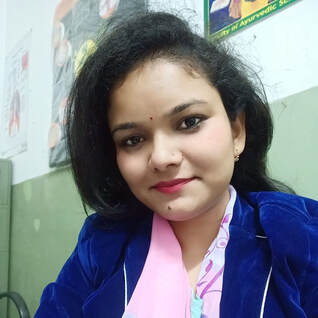
Dr. Jyoti Gangwal, BAMS, MD-Ayu, Rajasthan, India - in present time she perusing as an Assistant professor in Anatomy department at Jayoti vidyapeeth women's university, Jaipur, Rajasthan, India
Topic: Role of Ayurveda in Hyper Acidity
Abstract: Hyperacidity (Amlapitta) is one of the most common disease seen in the society. It is seen in all ages, all classes, and all community. Hyperacidity refers to a set of symptoms caused by an imbalance between the acid secreting mechanism of the stomach and proximal intestine and the protective mechanisms that ensure their safety. The stomach normally secretes acid that is essential in the digestive process. When there is excess production of acid in the stomach, it results in the condition known as acidity. Chakrapani in his commentary on Charak Samhita defines-“Amlapittam Cheti amlagunoundriktam pittam” - the augumented or increased amla guna of pitta is known as Amlapitta. Shrikanthadutta in his Madhukosha vyakhya defines-“Vidahadhyamla gunaoundrikta pittam amlapittam” i.e. the pitta becomes augumented or vidagdha because of excessive increase of amla guna of pitta & “Amlam vidagdham cha tat pittam amlapittam” the pitta which attains amla guna & vidagdhata is called as amlapitta. Acidityis related to heartburn and gas formation in stomach. In acidity, acid reflux or Gastro esophageal reflux disease (GERD), or more commonly known as 'Urdhvag Amalpitta' in ayurveda, there is a movement of gastric juices ( acid in nature) from the stomach into the lower part of esophagus. Ayurveda considerds it to be caused by the aggarvation of Pitta dosha. The Amlapitta vyadhi is caused due to Viruddhashana and Pittaprakopaka bhojana and pana. Individuals with a Pitta imbalance are susceptible to hyperacidity, peptic ulcers, and some types of inflammatory disorders. The symptoms of the Amlapitta varies from avipaka, klama, utklesha, amlodgar, anga-gaurava, hridaya / kantha pradesha daha and aruchi. Treatment -Avipattikar churna, kaamdudha rasa, Prawal pishti, mukta pishti, Kapardik bhasma, Sootshekhar rasa, Amalpiitantak loha.
Keyword- Amlapitta, Hyperacidity, vidagdhata, Kapardik bhasma, Sootshekhar rasa.
Topic: Role of Ayurveda in Hyper Acidity
Abstract: Hyperacidity (Amlapitta) is one of the most common disease seen in the society. It is seen in all ages, all classes, and all community. Hyperacidity refers to a set of symptoms caused by an imbalance between the acid secreting mechanism of the stomach and proximal intestine and the protective mechanisms that ensure their safety. The stomach normally secretes acid that is essential in the digestive process. When there is excess production of acid in the stomach, it results in the condition known as acidity. Chakrapani in his commentary on Charak Samhita defines-“Amlapittam Cheti amlagunoundriktam pittam” - the augumented or increased amla guna of pitta is known as Amlapitta. Shrikanthadutta in his Madhukosha vyakhya defines-“Vidahadhyamla gunaoundrikta pittam amlapittam” i.e. the pitta becomes augumented or vidagdha because of excessive increase of amla guna of pitta & “Amlam vidagdham cha tat pittam amlapittam” the pitta which attains amla guna & vidagdhata is called as amlapitta. Acidityis related to heartburn and gas formation in stomach. In acidity, acid reflux or Gastro esophageal reflux disease (GERD), or more commonly known as 'Urdhvag Amalpitta' in ayurveda, there is a movement of gastric juices ( acid in nature) from the stomach into the lower part of esophagus. Ayurveda considerds it to be caused by the aggarvation of Pitta dosha. The Amlapitta vyadhi is caused due to Viruddhashana and Pittaprakopaka bhojana and pana. Individuals with a Pitta imbalance are susceptible to hyperacidity, peptic ulcers, and some types of inflammatory disorders. The symptoms of the Amlapitta varies from avipaka, klama, utklesha, amlodgar, anga-gaurava, hridaya / kantha pradesha daha and aruchi. Treatment -Avipattikar churna, kaamdudha rasa, Prawal pishti, mukta pishti, Kapardik bhasma, Sootshekhar rasa, Amalpiitantak loha.
Keyword- Amlapitta, Hyperacidity, vidagdhata, Kapardik bhasma, Sootshekhar rasa.
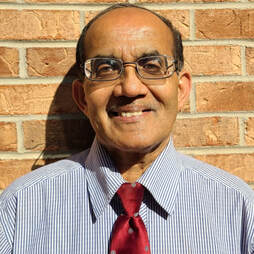
Dr. Nagabhushan Moolky, PhD, CNS, Illinois, USA - Senior Scientist, Senior Independent Consultant -Nutrition & Toxicology, Expert Witness, a certified nutrition specialist, USA, Health Coach, Yoga Expert, Ayurveda & Yoga researcher. He worked as a scientist for the last 35 years. He was a Scientific Officer at Tata Memorial Center Cancer Institute, Bombay, India where he completed his Ph.D. He worked as a scientist in several top-notch Universities (Research Scientist at Northwestern University, the University of Illinois at Chicago, Case Western Reserve University, the University of Kentucky & Loyola University of Chicago) in the USA. He was also an Assistant Professor (Research) at Northwestern University & University of Illinois at Chicago, Chicago, Illinois, USA. Director/Research Scientist, Toxicology/Genetic Toxicology, Illinois Institute of Technology (IIT) Research Institute, Chicago, Illinois, USA. He was the first one to show(1984) that some of the spices (its principles) - Turmeric (Curcumin), Ginger (Gingerol, Shaogol , and zingerone), Catechu (Catechin), and betel leaf (Hydroxychavicol) prevents genetic damage resulting in cancer formation caused by environmental and dietary chemicals. He is the first one to show (1987) that Turmeric in the diet prevents carcinogen-induced stomach tumors in mice and virus-induced spontaneous mammary tumors in mice. His research was recognized by more than 20 awards by the national and international organization including the Young Scientist Award (Gold Medal), 1988 from Indian Council for Medical Research (ICMR), New Delhi, India, and New Investigator Award 1989, American College of Nutrition, USA. He has published (more than 50 publications) his research findings in peer-reviewed national and international scientific journals and also presented more than 150 abstracts in national and international scientific meetings. In 2004, he was invited to present his work at the First International Conference on childhood leukemia, London. The research report was covered by all major newspapers and news channels around the world including BBC, CNBC, CBS, ABC news. The report was published in Lancet, New Scientist. He has given 8 talks on Ayurveda & Science at international conferences. Also, 6 webinars about the usefulness of turmeric during the present COVID19 Pandemic.
Topic: Gut Cancer
Abstract: Pluripotent Turmeric/Curcumins for the management of human gut health and diseases
Prof. Nagabhushan Moolky, Ph.D., C.N.S., Senior Scientist, Yoga Expert, Health Coach, Expert Witness, Ayurveda & Yoga Researcher, Independent Consultant - Nutrition & Toxicology, Oakbrook, Illinois, USA. Ankit Sahni, M.D., Oak Brook, Illinois, USA, Sinchana Goundalkar, Lakes Community High School, Lake Villa, Illinois, USA, Saanvi Sethi, Hinsdale Central High School, Hinsdale, Illinois, USA
In 1984 and 1987, Dr. Nagabhushan Moolky for the first time showed that turmeric and its active principles curcumins prevents mutation/genetic/chromosome damage caused by variety of cancers causing agents Mutagens/carcinogens) and prevents carcinogen-induced stomach cancer in animal model, scientists around the world, initiated research on the benefits of turmeric/curcumins for the prevention/treatment of various diseases in cell culture, animal models and human clinical trials Turmeric/curcumins exhibited pluripotent activity even in human clinical trials. Turmeric is the major spice from India. Henceforth, the turmeric/curcumins earned the reputation as the no.1 plant product sold and consumed by the America and around world. Before 1984 India was the major producer of turmeric of which 80% is consumed within India. Now the export of turmeric from India has tripled and India is the major supplier of turmeric/curcumins to the world. The human gut is the group of organs, such as mouth, esophagus, stomach, liver, pancreas, small and large intestine, that perform multiple functions to process complex raw food material to human body usable nutrients, energy, body maintenance and structural integrity. As mentioned above turmeric/curcumins prevent cancer of stomach, esophagus, colon, and liver. They inhibit the formation of mutagens/carcinogens in general, food contaminant fungal hepatocarcinogen, afltatoxinB1-induced mutagenicity Turmeric/curcumins inhibits the formation of mutagenic/carcinogenic nitrosamines/amides that are formed at human stomach acidic pH conditions (Nagabhushan 1987, 1994). They are also potent nonsteroidal anti-inflammatory/ antioxidants agents that may be useful in preventing human inflammatory bowel diseases (IBD). Gut is the primary site of immunological response and host immunity. Mouh, stomach and intestine harbors billions of microbiotas that contribute to the secretion, breakdown, and absorption of biologically important molecules. Maintains balance between healthy and harmful microbiota. Curd is consumed traditionally at the end of the meal, to supplement the growth of healthy microbiota. Research shows that curcumins being antibacterial does not imbalance microbiota, instead it enhances the growth of healthy microbiota.
Helicobacter pylori – induces human gastritis, chronic pain, indigestion, and discomfort, also causes stomach cancer. 80% of populations in the developing world are infected with H. Pylori but the stomach cancer incidence is low compared to other parts of the world with lower rate of infection. Turmeric/curcumins inhibits the growth of various strains of H. Pylori at 15μg/ml, turmeric, other spices, and curd may be responsible for the lower incidence of stomach cancer in highly infected populations. In other conditions such as leaky gut, endotoxemia shock (food poisoning), ischemia reperfusion injury curcumins may be useful. Curcumin improves hypothermic liver preservation, decreases graft vs host reaction, inhibits Epstein Barr Viruses (Nagabhushan 1998) and inhibits many types of enteric pathogenic bacteria. Brain health is closely connected to gut health, turmeric/curcumins maintain the gut health may affect the chronic neurological old age diagnosed diseases (Parkinson, Alzheimer and dementia)
Topic: Gut Cancer
Abstract: Pluripotent Turmeric/Curcumins for the management of human gut health and diseases
Prof. Nagabhushan Moolky, Ph.D., C.N.S., Senior Scientist, Yoga Expert, Health Coach, Expert Witness, Ayurveda & Yoga Researcher, Independent Consultant - Nutrition & Toxicology, Oakbrook, Illinois, USA. Ankit Sahni, M.D., Oak Brook, Illinois, USA, Sinchana Goundalkar, Lakes Community High School, Lake Villa, Illinois, USA, Saanvi Sethi, Hinsdale Central High School, Hinsdale, Illinois, USA
In 1984 and 1987, Dr. Nagabhushan Moolky for the first time showed that turmeric and its active principles curcumins prevents mutation/genetic/chromosome damage caused by variety of cancers causing agents Mutagens/carcinogens) and prevents carcinogen-induced stomach cancer in animal model, scientists around the world, initiated research on the benefits of turmeric/curcumins for the prevention/treatment of various diseases in cell culture, animal models and human clinical trials Turmeric/curcumins exhibited pluripotent activity even in human clinical trials. Turmeric is the major spice from India. Henceforth, the turmeric/curcumins earned the reputation as the no.1 plant product sold and consumed by the America and around world. Before 1984 India was the major producer of turmeric of which 80% is consumed within India. Now the export of turmeric from India has tripled and India is the major supplier of turmeric/curcumins to the world. The human gut is the group of organs, such as mouth, esophagus, stomach, liver, pancreas, small and large intestine, that perform multiple functions to process complex raw food material to human body usable nutrients, energy, body maintenance and structural integrity. As mentioned above turmeric/curcumins prevent cancer of stomach, esophagus, colon, and liver. They inhibit the formation of mutagens/carcinogens in general, food contaminant fungal hepatocarcinogen, afltatoxinB1-induced mutagenicity Turmeric/curcumins inhibits the formation of mutagenic/carcinogenic nitrosamines/amides that are formed at human stomach acidic pH conditions (Nagabhushan 1987, 1994). They are also potent nonsteroidal anti-inflammatory/ antioxidants agents that may be useful in preventing human inflammatory bowel diseases (IBD). Gut is the primary site of immunological response and host immunity. Mouh, stomach and intestine harbors billions of microbiotas that contribute to the secretion, breakdown, and absorption of biologically important molecules. Maintains balance between healthy and harmful microbiota. Curd is consumed traditionally at the end of the meal, to supplement the growth of healthy microbiota. Research shows that curcumins being antibacterial does not imbalance microbiota, instead it enhances the growth of healthy microbiota.
Helicobacter pylori – induces human gastritis, chronic pain, indigestion, and discomfort, also causes stomach cancer. 80% of populations in the developing world are infected with H. Pylori but the stomach cancer incidence is low compared to other parts of the world with lower rate of infection. Turmeric/curcumins inhibits the growth of various strains of H. Pylori at 15μg/ml, turmeric, other spices, and curd may be responsible for the lower incidence of stomach cancer in highly infected populations. In other conditions such as leaky gut, endotoxemia shock (food poisoning), ischemia reperfusion injury curcumins may be useful. Curcumin improves hypothermic liver preservation, decreases graft vs host reaction, inhibits Epstein Barr Viruses (Nagabhushan 1998) and inhibits many types of enteric pathogenic bacteria. Brain health is closely connected to gut health, turmeric/curcumins maintain the gut health may affect the chronic neurological old age diagnosed diseases (Parkinson, Alzheimer and dementia)
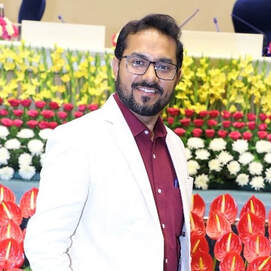
Dr. Nitin Juneja, BAMS, MD-Ayu, Punjab, India - have done BAMS,MD and I am working as an Associate Professor in the Department of Dravyaguna in Saraswati Ayurved Hospital and Medical College,Gharuan,Mohali,Punjab. I have participated in various National and International Conferences. I have also published many articles in different newspapers along with that I have also participated in Radio talk shows. I always remain attentive in the field of Ayurveda.
Topic: An Ayurvedic Management of GERD (Gastro Esophageal Reflux Disorder)
Abstract: Gastroesophageal reflux disease (GERD) is one of the most prevalent gastrointestinal disorders. GERD is a specific clinical entity defined by the occurrence of gastroesophageal reflux through the lower esophageal sphincter (LES) into the esophagus or oropharynx to cause symptoms, injury to esophageal tissue, or both. The classical triad of symptoms is retrosternal burning pain (heart burn), epigastric pain (sometimes radiating through to the back) and regurgitation. Direct correlation of GERD in ayurvedic terminology is difficult. The conferment and samprapti with doshadshya-sammurchhna should be considered. Aggravated Vata dosha is responsible for causing vishama gati (motor abnormalities) in Annavaha srotas leading to deracination of pitta from its natural site.
Topic: An Ayurvedic Management of GERD (Gastro Esophageal Reflux Disorder)
Abstract: Gastroesophageal reflux disease (GERD) is one of the most prevalent gastrointestinal disorders. GERD is a specific clinical entity defined by the occurrence of gastroesophageal reflux through the lower esophageal sphincter (LES) into the esophagus or oropharynx to cause symptoms, injury to esophageal tissue, or both. The classical triad of symptoms is retrosternal burning pain (heart burn), epigastric pain (sometimes radiating through to the back) and regurgitation. Direct correlation of GERD in ayurvedic terminology is difficult. The conferment and samprapti with doshadshya-sammurchhna should be considered. Aggravated Vata dosha is responsible for causing vishama gati (motor abnormalities) in Annavaha srotas leading to deracination of pitta from its natural site.
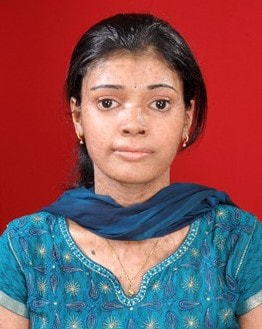
Dr. S. Supriya, BAMS, MD-Ayu, Karnataka, India - belongingto Kundapura,a small town in Karnataka state of India. I have completed BAMS(Bachelor of Ayurveda Medicine and Surgery), In Sri Dharmasthala Manjunatheshwara Ayurveda Medical College and Hospital, Udupi, Karnataka. Obtained My post-Graduation( MD Ayurveda) in Kayachikitsa from Government Ayurveda Medical College and Hospital, Mysore, Karnataka. Presently working as Associate Professor in the Dept of Swasthavritta and Yoga, of Yenepoya Ayurveda Medical college and Hospital, Yenepoya (Deemed to be University), Mangaluru, Karnataka.
Topic: A Control Clinical Study of Takra Basti in Grahani Roga with special reference to Irritable Bowel Syndrome
Abstract: Grahaniroga represents a group of disorders of digestive system caused by the impairment of agni. Cardinal features of Grahani roga explained in classical textbooks of Ayurveda have similarities with the clinical features of Irritable Bowel syndrome (IBS) explained in contemporary science. Irritable Bowel syndrome (IBS) is a functional bowel disorder characterized by abdominal pain and changes in bowel habit. Irritable bowel syndrome (IBS) is a disorder of G.I. tract which prevails in majority of the global population. Throughout the world about 10-20% of adult and adolescents have symptoms pertaining to IBS. In present study the effect of basti chikitsa using takra(buttermilk) along with oral medication –Kapittastaka churna and Tablet Medicalm was taken. A controlled clinical study was done by administering Kapittastaka churna and Tablet Medicalm in both the groups and Takrabasti was administered for group B in yogabasti pattern. Overall assessment showed moderate (50- 70 Percentage) improvement in all 20 patients of both the groups.
Topic: A Control Clinical Study of Takra Basti in Grahani Roga with special reference to Irritable Bowel Syndrome
Abstract: Grahaniroga represents a group of disorders of digestive system caused by the impairment of agni. Cardinal features of Grahani roga explained in classical textbooks of Ayurveda have similarities with the clinical features of Irritable Bowel syndrome (IBS) explained in contemporary science. Irritable Bowel syndrome (IBS) is a functional bowel disorder characterized by abdominal pain and changes in bowel habit. Irritable bowel syndrome (IBS) is a disorder of G.I. tract which prevails in majority of the global population. Throughout the world about 10-20% of adult and adolescents have symptoms pertaining to IBS. In present study the effect of basti chikitsa using takra(buttermilk) along with oral medication –Kapittastaka churna and Tablet Medicalm was taken. A controlled clinical study was done by administering Kapittastaka churna and Tablet Medicalm in both the groups and Takrabasti was administered for group B in yogabasti pattern. Overall assessment showed moderate (50- 70 Percentage) improvement in all 20 patients of both the groups.
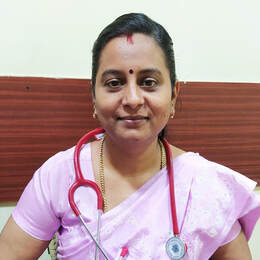
Dr. Senthil Rani Gopalaswamy, BAMS, Tamil Nadu, India - Completed my B.A.M.S from Jayendra saraswathi Ayurveda College, Chennai. I have also completed Diploma in food and Nutrition .And currently working as a Senior Medical Officer in Arya Vaidya Chikitsalayam & Research Institute , Coimbatore, India. I have 16 years of Clinical Experience. My expertise is on Gynecological conditions, neuro-degenerative conditions, and DM. Was a resource person in Ayu Gotra 2019. Given various webinar presentations on women's health. Given an online presentation on Liver cirrhosis in Global Ayurveda Conferences on June 2021.
Topic: Amla Pitta and Ayurvedic Management
Abstract: Amla pitta a common digestive disorder is a growing global problem seen in all age groups. Due to the current erratic lifestyle changes including unwholesome eating habits and imparting lifestyle that takes a toll on one’s psychological status leads to psychosomatic origin of Amla pitta too. If one does not give heart and soul to what they eat and do, it indeed starts eating away their heart and soul. Ayurveda tells about Aharam and Viharam and then only about disease and its management. Even for Swastha, Ritu based shodhanam is said. Mridu Virechanam when done will help in expelling the Vidagdha Pittam.When Annavaha srotas is affected, then Shamanam and Shodhana Chikitsa to be carried out as per the Vyadhi Avastha and Rogi Balam. Key words – Amlapittam, Vidagdham, Annavaha Srotas, Shodhanam, Shamanam, Virechanam, Aharam, Viharam.
Topic: Amla Pitta and Ayurvedic Management
Abstract: Amla pitta a common digestive disorder is a growing global problem seen in all age groups. Due to the current erratic lifestyle changes including unwholesome eating habits and imparting lifestyle that takes a toll on one’s psychological status leads to psychosomatic origin of Amla pitta too. If one does not give heart and soul to what they eat and do, it indeed starts eating away their heart and soul. Ayurveda tells about Aharam and Viharam and then only about disease and its management. Even for Swastha, Ritu based shodhanam is said. Mridu Virechanam when done will help in expelling the Vidagdha Pittam.When Annavaha srotas is affected, then Shamanam and Shodhana Chikitsa to be carried out as per the Vyadhi Avastha and Rogi Balam. Key words – Amlapittam, Vidagdham, Annavaha Srotas, Shodhanam, Shamanam, Virechanam, Aharam, Viharam.
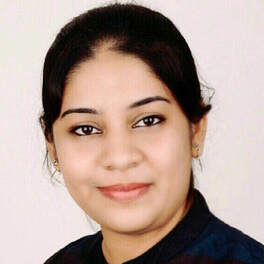
Dr. Nilofar Shaikh, BAMS, MS-Ayu, Gujarat, India - Adept Ayurvedic doctor with clinical experience in field of gynaecology and obstetrics.At present working as Associate professor and consultant in Prasutitantra evam streeroga department of JS Ayurved Mahavidhyalaya, nadiad, Gujarat.Successfully treated many cases of infertility, PCOD, uterine fibroid, menstrual disorders and breast diseases. Appointed as PI (Primary Investigator) in two research projects on cervical cell dysplasia and healthy progeny through ayurveda. Delivered many guest lecturers as subject expert at SATCOM, ECHO Ayursajeevaniyam and Diksha E learning Platforms. Published many research articles in peer reviewed scientific journals and appointed as reviewer in J-AIM peer reviewed journal.
Topic: Vomiting During Pregnancy and Ayurvedic Management
Abstract: Vomiting during pregnancy (Garbhini chhardi) is most common ailment encountered in obstetric practice .This condition is seen in most of the pregnant women mainly in 1st trimester worldwide in about 50 - 80 % of pregnancy. And If not tackled effectively before or in time it may affect woman’s quality of life. Altered Hormonal and Immunological stages are responsible for initiation of this manifestation which is probably aggravated by neurogenic factors. In Ayurvedic texts many effective formulations are described for the management of Vomiting during pregnancy( Garbhini chhardi) . The Ayurvedic drugs having soft, sweet, cold, pleasing and gentle properties are find effective in the management of Vomiting during pregnancy.
Topic: Vomiting During Pregnancy and Ayurvedic Management
Abstract: Vomiting during pregnancy (Garbhini chhardi) is most common ailment encountered in obstetric practice .This condition is seen in most of the pregnant women mainly in 1st trimester worldwide in about 50 - 80 % of pregnancy. And If not tackled effectively before or in time it may affect woman’s quality of life. Altered Hormonal and Immunological stages are responsible for initiation of this manifestation which is probably aggravated by neurogenic factors. In Ayurvedic texts many effective formulations are described for the management of Vomiting during pregnancy( Garbhini chhardi) . The Ayurvedic drugs having soft, sweet, cold, pleasing and gentle properties are find effective in the management of Vomiting during pregnancy.

Dr. Jaya Daptardar, BAMS, MHA, Connecticut, USA - is an internationally renowned Ayurveda expert, writer, entrepreneur, healthcare executive, speaker, and leader. She is an Ayurvedic doctor and has a Master's in healthcare administration & Management in the USA. She is a recipient of the DHARMA award from the Association of Ayurvedic professionals of North America. She has been practicing and teaching Ayurveda in the USA for 20 years. Besides her work in Ayurveda and the wellness world, she also works as a Chief Operating Officer of a healthcare company and serves multiple boards.
Topic: Anorexia Nervosa: Ayurvedic Perspective
Abstract: Anorexia Nervosa is a symptom of defective digestive mechanisms. Ayurveda suggests that food should be taken when feeling hunger in a relaxed, comfortable, and clean environment with a happy mind and free from grief, anger, fear, etc. Symptoms of Aruchi are loss of interest in food or willful abstinence leading to behavioral changes. Digestive fire or Jataragni causes the transformation of food into assimilable forms. Good digestive fire gives good taste and hunger. Impaired digestive fire or Jataragni results in the production of ama or partially digested food with toxic nature. Ama results in blockage of subtle channels carrying nutrients and life force. Gradually, Bodhaka Kapha, a subdivision of Kapha humor in the tongue which aids in taste sensation, and Kledaka Kapha which acts in the digestive process in the stomach are also get vitiated. Emotional disturbances, lack of sleep, malnutrition result in vitiation of Samana Vatha which functions in the stomach. Loss of harmonic equilibrium of digestive fire or Jataragni, Samana Vatha, Bodhaka Kapha, and Kledaka Kapha result in lack of taste and aversion to food.
Topic: Anorexia Nervosa: Ayurvedic Perspective
Abstract: Anorexia Nervosa is a symptom of defective digestive mechanisms. Ayurveda suggests that food should be taken when feeling hunger in a relaxed, comfortable, and clean environment with a happy mind and free from grief, anger, fear, etc. Symptoms of Aruchi are loss of interest in food or willful abstinence leading to behavioral changes. Digestive fire or Jataragni causes the transformation of food into assimilable forms. Good digestive fire gives good taste and hunger. Impaired digestive fire or Jataragni results in the production of ama or partially digested food with toxic nature. Ama results in blockage of subtle channels carrying nutrients and life force. Gradually, Bodhaka Kapha, a subdivision of Kapha humor in the tongue which aids in taste sensation, and Kledaka Kapha which acts in the digestive process in the stomach are also get vitiated. Emotional disturbances, lack of sleep, malnutrition result in vitiation of Samana Vatha which functions in the stomach. Loss of harmonic equilibrium of digestive fire or Jataragni, Samana Vatha, Bodhaka Kapha, and Kledaka Kapha result in lack of taste and aversion to food.
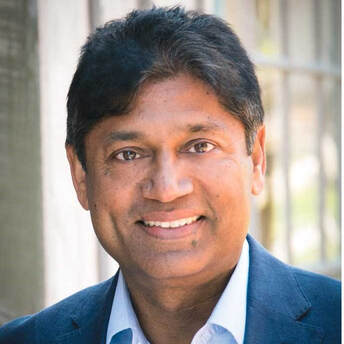
Dr. Somesh Kaushik, BAMS, ND, MPH, MHA, ERYT, Connecticut, USA - is the founder and principal instructor at the Institute For the Advancement of Ayurvedic Sciences and the chief medical practitioner of Dr. Kaushik’s Ayurvedic and Naturopathic Clinic in Cross River, NY. With over 35 years’ experience as an Ayurvedic physician, Dr. Kaushik’s medical training is extensive. He is one of the most experienced Ayurvedic physicians in North America. After completing his Bachelor of Ayurvedic Medicine and Surgery (BAMS) from Kurukshetra University, India, in 1983, Dr. Kaushik worked as an Ayurvedic Medical officer. Upon moving to the United States in 1985, Dr. Kaushik received his Masters of Public Health (MPH) and Masters of Public Administration (MPA) from the University of Alabama in 1988. He then worked as an Epidemiologist and Director of HIV/AIDS Sero-surveillance Program with the Alabama Department of Public Health in Montgomery while maintaining an Ayurvedic practice. In 1999, he moved to Connecticut and received his Doctor of Naturopathic Medicine (ND) from the University of Bridgeport, CT in 2003. He taught Ayurvedic Medicine and Public Health at the College of Naturopathic Medicine, University of Bridgeport, as well as serving as the Director of Admissions. He had been a faculty member with the University of Bridgeport, Division of Health Sciences, from 2001-2009. Dr. Kaushik co-founded the Institute for Ayurvedic and Naturopathic Therapies in Fairfield, CT in 2006 and then later expanded to NYC and Cross River to serve more individuals. Dr. Kaushik lectures on Ayurvedic Medicine at various colleges and universities, as well as at various national and international symposiums and events. He also offers courses, workshops, lectures, and training in Ayurvedic medicine locally. Every year, Dr. Kaushik and his family travel to India to set up camps offering free medical care for underserved populations. He would like to expand this service to other countries as well. Dr. Kaushik brings his unique background as an Ayurvedic and Naturopathic practitioner with experience in public health and health education to his patients
Topic: Ulcerative Colitis and Ayurvedic Management
Abstract: Ulcerative colitis is a chronic inflammatory disease in which colonic wall develops erosion with bleeding affecting about 900,000 people in the United States resulting in over a quarter million clinic visits annually. It has a bimodal pattern of incidence with main onset peaks between the ages of 15 to 30 years and 50 to 70 years. This is a debilitating condition without any known cure. Ayurvedic medicine with a personalized herbal supplementation, life style adaptation and dietary changes provide very promising results for UC patients keeping them symptoms free.
Topic: Ulcerative Colitis and Ayurvedic Management
Abstract: Ulcerative colitis is a chronic inflammatory disease in which colonic wall develops erosion with bleeding affecting about 900,000 people in the United States resulting in over a quarter million clinic visits annually. It has a bimodal pattern of incidence with main onset peaks between the ages of 15 to 30 years and 50 to 70 years. This is a debilitating condition without any known cure. Ayurvedic medicine with a personalized herbal supplementation, life style adaptation and dietary changes provide very promising results for UC patients keeping them symptoms free.
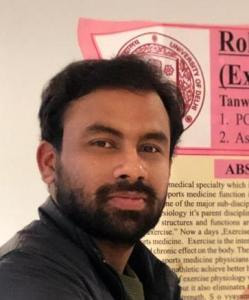
Dr. Ankur Kumar Tanwar, BAMS, MD-Ayu, PhD-Scholar, New Delhi, India - Completed Graduation and post Graduation in Kriya Sharir (Ayurvedic Physiology) from Delhi University and Pursuing Ph.D. in Kriya Sharir (Physiology) from All India Institute of Ayurveda, Sarita Vihar, New Delhi.
Topic: Healthy sleep cycle (Samyak Nidra): A factor behind healthy gut microbe
Abstract: Nidra (Sleep) is a natural trait that brings peace to the mind and body. The importance of sleep and its role in maintaining health is extensively covered in the ayurveda classics. Due to its importance, it is considered under the heading tryoupstambha (sub-pillar of life). Samyak Nidra, according to the ayurveda, is responsible for delight and sadness, development and wasting, strength and weakness, virility and impotence, knowledge and ignorance, as well as survival and termination of existence. Modern science also recognizes the importance of sleep because of its restorative and harmonious effects on living organisms. Regulated sleep and wakefulness (Samyak Nidra) are defined as sleeping in the middle of the night and remaining awake during the first and last halves of the night, as well as during the day. However, through Nidra Viparyaya, the modern man is attempting to overcome such harmonic traits. Finally, the biological clock, which is essential for human life's well-being, is disrupted, resulting in the vitiation of agni. Vitiated agni may further change the gut microbe diversity and resulted in the appearance of diseases that occurred. The gut microbes which dwell in the Mahasrotasa (gastrointestinal tract) may be considered a source of agni and responsible for ahara and drug metabolism. As samyak nidra is essential for samyak agni. But by following the nidra viparyaya, the expansion of particular gut bacteria may have occurred which may cause a metabolic disturbance, and reciprocally sleep quality is influenced by the gut microbiome. The importance of gut microbiota in human health and metabolic functions as well as the role of the healthy sleep-wake cycle has been highlighted in recent years by studies. Studies revealed that the phyla Bacteroidetes and Firmicutes of the gut microbiota have been linked to sleep quality in humans and these phyla also control circadian rhythm and food intake, both of which affect sleep quality. This discussion is an attempt to clarify the idea of Samyak nidra concerning gut microbiota functions.
Topic: Healthy sleep cycle (Samyak Nidra): A factor behind healthy gut microbe
Abstract: Nidra (Sleep) is a natural trait that brings peace to the mind and body. The importance of sleep and its role in maintaining health is extensively covered in the ayurveda classics. Due to its importance, it is considered under the heading tryoupstambha (sub-pillar of life). Samyak Nidra, according to the ayurveda, is responsible for delight and sadness, development and wasting, strength and weakness, virility and impotence, knowledge and ignorance, as well as survival and termination of existence. Modern science also recognizes the importance of sleep because of its restorative and harmonious effects on living organisms. Regulated sleep and wakefulness (Samyak Nidra) are defined as sleeping in the middle of the night and remaining awake during the first and last halves of the night, as well as during the day. However, through Nidra Viparyaya, the modern man is attempting to overcome such harmonic traits. Finally, the biological clock, which is essential for human life's well-being, is disrupted, resulting in the vitiation of agni. Vitiated agni may further change the gut microbe diversity and resulted in the appearance of diseases that occurred. The gut microbes which dwell in the Mahasrotasa (gastrointestinal tract) may be considered a source of agni and responsible for ahara and drug metabolism. As samyak nidra is essential for samyak agni. But by following the nidra viparyaya, the expansion of particular gut bacteria may have occurred which may cause a metabolic disturbance, and reciprocally sleep quality is influenced by the gut microbiome. The importance of gut microbiota in human health and metabolic functions as well as the role of the healthy sleep-wake cycle has been highlighted in recent years by studies. Studies revealed that the phyla Bacteroidetes and Firmicutes of the gut microbiota have been linked to sleep quality in humans and these phyla also control circadian rhythm and food intake, both of which affect sleep quality. This discussion is an attempt to clarify the idea of Samyak nidra concerning gut microbiota functions.
Privacy Policy |
© COPYRIGHT 2018. ALL RIGHTS RESERVED.
|
Informed Consent & Disclaimer: Information on this web site is provided for informational and educational purposes only and is not intended as a substitute for the advice provided by your physician or other healthcare professional or any information contained on or in any product label or packaging. Do not use the information on this web site for diagnosing or treating a health problem or disease, or prescribing medication or other treatment. Always speak with your physician or other healthcare professional regarding any health concerns and before taking any medication or nutritional, herbal or homeopathic supplement, or using any treatment for a health problem. Information and statements regarding dietary supplements have not been evaluated by the Food and Drug Administration and are not intended to diagnose, treat, cure, or prevent any disease.
- Home
- Shop
- Study Ayurveda
- Conferences
-
Past Conferences
- 61 Conference Ayurveda & Parkinson's Disease
- 60 Conference Ayurveda & Metabolic Disorders
- 59 Conference Ayurveda & Arthritis
- 58 Conference Ayurveda & Allergies
- 57 Conference Child Health Care Through Ayurveda
- 56 Conference Ayurveda for Women
- 55 Conference Ayurveda & Emotions
- 54 Conference Ayurveda & Addictions
- 53 Conference Ayurveda for a Healthy World
- 52 Conference Ayurveda & Eye Care
- 51 Conference Ayurveda & Stress Management
- 50 Conference Ayurveda & Marma Therapy
- 49 Conference Ayurveda & Aroma Therapy
- 48 Conference Ayurveda & Fertility
- 47 Conference Ayurveda for Healthy Living
- 46 Conference Ayurveda & Thyroid Care
- 45 Conference Ayurveda & Kidney Care
- 44 Conference Ayurveda & Heart Care
- 43 Conference Ayurveda & Gut Health
- 42 Conference Ayurveda & Liver Care
- 41 Conference Ayurveda & Lung Care
- 40 Conference Ayurveda & Skin Care
- 39 Conference Ayurveda & Pain Management
- 38 Conference Clinical Ayurveda
- 37 Conference Ayurveda & the Mind
- 36 Conference Ashtanga Ayurveda
- 35 Conference Ayurveda & Epigenetics
- 34 Conference: Evedence Based Ayurveda
- 33 Conference: Ayurvedic Pediatrics
- 32 Conference Ayurveda: Autoimmune & Metabolic Disorders
- 31 Conference AyurYoga for Radiant Health - Cruise
- 30 Conference Ayurveda, Yoga, Spirituality
- 29th Conference Mother & Child Healthcare
- 28 Conference Ayurveda & Panchakarma
- 27 Conference Ayurveda for All
- 26 Conference Ayurveda & Women's Health
- 25 Conference Silver Jubilee
- 24 Conference Kayachikitsa & Panchakarma
- 23 Conference Ayurveda for Health
- 22 Conference Home Remedies
- 21 Conference Ayurveda & Psychology
- 20 Conference Panchanga Veda
- 19 Conference Integrated Medicine
- 18 Conference Herbs & Minerals
- 17 Conference Food & Nutrition
- 16 Conference Shalakya Manthana
- 15 Conference Autoimmune Disorders
- 14 Conference Consciousness
- 13 Conference Energy Medicine
- 12 Conference Spirituality & Healing
- Related

